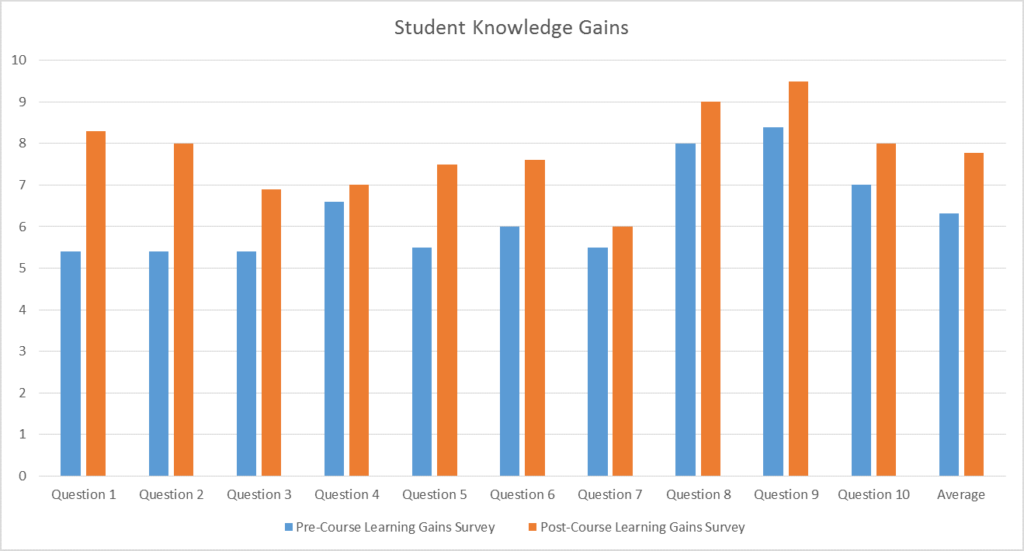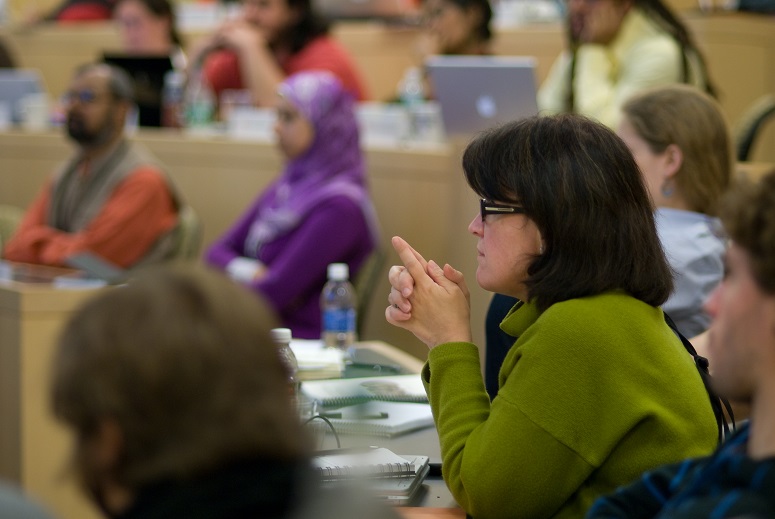Delivering the Story: Why Movement Reporting Matters
Why Violence Undermines Protest
Let’s Get Real! Facing Up to the Agent Provocateur Problem
Madagascar: No Defection Too Small, No Act of Resistance Too Isolated
Uprooting Corruption in Uganda: Protest or Persuasion?
Nonviolent Resistance and Prevention of Mass Killings During Popular Uprisings
By Evan Perkoski and Erica Chenoweth, May 2018
Free Download
Purchase a Print Copy
Purchase e-book (Nook | Kindle)
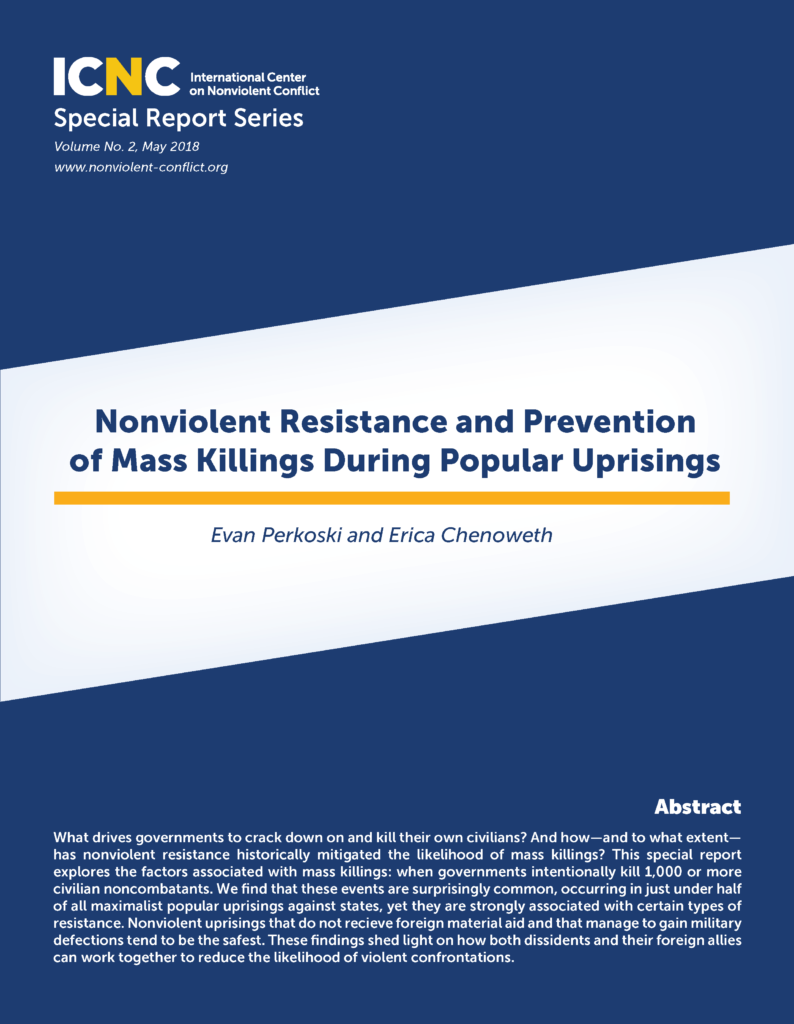
What drives governments to crack down on and kill their own civilians? And how—and to what extent—has nonviolent resistance historically mitigated the likelihood of mass killings? This special report explores the factors associated with mass killings: when governments intentionally kill 1,000 or more civilian noncombatants. We find that these events are surprisingly common, occurring in just under half of all maximalist popular uprisings against states, yet they are strongly associated with certain types of resistance. Nonviolent uprisings that do not receive foreign material aid and that manage to gain military defections tend to be the safest. These findings shed light on how both dissidents and their foreign allies can work together to reduce the likelihood of violent confrontations.
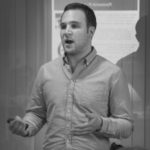 Dr. Evan Perkoski is an assistant professor in the Department of Political Science at the University of Connecticut. His research focuses on the dynamics of rebel, insurgent, and terrorist groups; strategies of violent and nonviolent resistance; and the behavior of state and nonstate actors in cyberspace. His book manuscript explores the breakdown of armed organizations, focusing particularly on the emergence of splinter groups and how they behave relative to their predecessors. He received his PhD from the University of Pennsylvania and has held fellowships at the Belfer Center for Science and International Affairs at the Harvard Kennedy School of Government as well as the Josef Korbel School of International Studies at the University of Denver.
Dr. Evan Perkoski is an assistant professor in the Department of Political Science at the University of Connecticut. His research focuses on the dynamics of rebel, insurgent, and terrorist groups; strategies of violent and nonviolent resistance; and the behavior of state and nonstate actors in cyberspace. His book manuscript explores the breakdown of armed organizations, focusing particularly on the emergence of splinter groups and how they behave relative to their predecessors. He received his PhD from the University of Pennsylvania and has held fellowships at the Belfer Center for Science and International Affairs at the Harvard Kennedy School of Government as well as the Josef Korbel School of International Studies at the University of Denver.
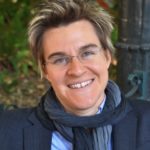 Dr. Erica Chenoweth is a Professor at the Josef Korbel School of International Studies at the University of Denver. Foreign Policy magazine ranked her among the Top 100 Global Thinkers of 2013 for her work to advance the empirical study of civil resistance. Her book, Why Civil Resistance Works (Columbia University Press, 2011) with Maria J. Stephan, also won the 2013 Grawemeyer Award for Ideas Improving World Order. Chenoweth has authored or edited four books and dozens of articles on political violence and its alternatives. She earned a PhD and an MA from the University of Colorado and a BA from the University of Dayton.
Dr. Erica Chenoweth is a Professor at the Josef Korbel School of International Studies at the University of Denver. Foreign Policy magazine ranked her among the Top 100 Global Thinkers of 2013 for her work to advance the empirical study of civil resistance. Her book, Why Civil Resistance Works (Columbia University Press, 2011) with Maria J. Stephan, also won the 2013 Grawemeyer Award for Ideas Improving World Order. Chenoweth has authored or edited four books and dozens of articles on political violence and its alternatives. She earned a PhD and an MA from the University of Colorado and a BA from the University of Dayton.
Check out the related ICNC Webinar
How Can Resistance Movements Limit Mass Killings By Repressive Governments?
Date: June 20, 2018
Presenter: Evan Perkoski
Civil Resistance: A First Look
Does Protesting Do Any Good?
Curriculum Fellowship Awardees 2017
In 2014, ICNC launched the Curriculum Fellowship Program to support development of courses on nonviolent conflict and promote teaching in the growing field of civil resistance studies by selecting seven curriculum fellows. In both 2015 and 2016 ICNC accepted six fellows. In 2016, ICNC added a new component to the curriculum support program, online courses that interested fellows taught in 2016 and Spring 2017. The online teaching became an integral part of the initiative and the 2017 cohort of fellows will continue teaching both classroom-based and online courses on civil resistance.
ICNC is excited to continue the Curriculum Fellowship Program by accepting seven fellows for the 2017 cohort. These fellows will be teaching in person courses in Kenya, the United States, and Finland. Online courses will be taught in Hong Kong, Armenia, and Cambodia.
The 2017 Fellows are:
Solomon Onyango
Tyler Dale Hauger
Bunly Soeung
Hasan Habes
Johnson Ching-Yin Yeung
Lusine Arakelyan
Lilit Makunts
 Solomon Onyango received his Bachelor in Social Sciences & his Masters in Public Administration and Management from Makerere University in Kampala, Uganda. He is currently a lecturer of Political Science at the Catholic University of Eastern Africa (CUEA) and a PhD candidate with the Social Transformation (Governance and Democracies) Department at Tangaza University College in Nairobi, Kenya. His doctoral dissertation, “Strengthening Accountability through Deliberative Citizen Participation in Sub-National Government” seeks to examine the nexus between deliberative citizen participation and accountability at the sub-national government level in Lamu County, Kenya. Solomon’s teaching and research is anchored in a multi-disciplinary intersection of governance, democratization and decentralization within Africa. He regularly teaches core topical courses on Public Administration, Democracy and Governance, and Social & Public Policy in Africa. Solomon also holds distinguished awards from the South-South Institute and the Democratic Governance Institute of the Council for the Development of Social Science Research in Africa.
Solomon Onyango received his Bachelor in Social Sciences & his Masters in Public Administration and Management from Makerere University in Kampala, Uganda. He is currently a lecturer of Political Science at the Catholic University of Eastern Africa (CUEA) and a PhD candidate with the Social Transformation (Governance and Democracies) Department at Tangaza University College in Nairobi, Kenya. His doctoral dissertation, “Strengthening Accountability through Deliberative Citizen Participation in Sub-National Government” seeks to examine the nexus between deliberative citizen participation and accountability at the sub-national government level in Lamu County, Kenya. Solomon’s teaching and research is anchored in a multi-disciplinary intersection of governance, democratization and decentralization within Africa. He regularly teaches core topical courses on Public Administration, Democracy and Governance, and Social & Public Policy in Africa. Solomon also holds distinguished awards from the South-South Institute and the Democratic Governance Institute of the Council for the Development of Social Science Research in Africa.
Course Title: Theory and Practice of Non-Violent Resistance in East Africa
Location: Institute of Regional Integration and Development (IRID) at the Catholic University of Eastern Africa (CUEA), Nairobi, Kenya (August-December 2017)
Course Abstract: In this course, participants will become familiar with nonviolent resistance, from the era of colonial and post-colonial Africa to the Arab Spring. It will explore facets of nonviolent resistance as a proven social action movement capable of destabilizing colonies, establishing independent states or toppling rogue regimes and recasting the geopolitical landscape in East Africa. It will explore questions surrounding the ethics of nonviolent action, when and where civil resistance is used, the conditions under which it is more or less effective, and its consequences for local communities, state polities and the international system. The course will draw from seminal philosophical texts, historical accounts and cutting-edge social science research. Students will gain an understanding of both the normative and empirical debates surrounding the practice of civil resistance and a familiarity with key cases within and outside the East Africa. The course will cover major topics related to the general field of civil resistance as well as case studies specific to East Africa and Kenya.
Solomon’s course evaluation and learning assessment
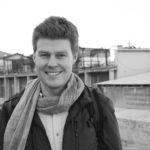 Tyler Dale Hauger is a visiting faculty member at St. Olaf College in Northfield, MN, USA in January 2018. He works full-time as an advisor at Karibu Foundation in Oslo, Norway, an organization that supports civil society movements in Global South that lift up alternatives to the dominant paradigms of power, distribution, and development. Tyler holds a M.Phil. in Peace and Conflict Studies from the University of Oslo (2011), as well as a B.A. in Political Science and Religion from St. Olaf College (2008). His interests and research areas include international relations, conflict resolution & reconciliation, economic globalization & trade regimes, social movements, nonviolent action strategies, and ecumenism & interfaith initiatives. He has previously served with the LWF’s Department for World Service’s Jerusalem office in East Jerusalem, and he currently sits on the board of the Norwegian Social Forum- the Norwegian arm of the World Social Forum.
Tyler Dale Hauger is a visiting faculty member at St. Olaf College in Northfield, MN, USA in January 2018. He works full-time as an advisor at Karibu Foundation in Oslo, Norway, an organization that supports civil society movements in Global South that lift up alternatives to the dominant paradigms of power, distribution, and development. Tyler holds a M.Phil. in Peace and Conflict Studies from the University of Oslo (2011), as well as a B.A. in Political Science and Religion from St. Olaf College (2008). His interests and research areas include international relations, conflict resolution & reconciliation, economic globalization & trade regimes, social movements, nonviolent action strategies, and ecumenism & interfaith initiatives. He has previously served with the LWF’s Department for World Service’s Jerusalem office in East Jerusalem, and he currently sits on the board of the Norwegian Social Forum- the Norwegian arm of the World Social Forum.
Course Title: Political Science 231: Peace and Nonviolent Resistance
Location: St. Olaf College, Minnesota, USA
Course Abstract: The course will explore central theories and perspectives associated with peace, conflict reconciliation, and nonviolent resistance with perspectives from the Nordic countries and around the globe. What lessons can be learned from actors that are struggling nonviolently for individual and collective rights, social and economic justice, and a collective responsibility for coming generations? What key strategies are individuals and groups using in their struggle to create a just community and world? How do groups and individuals approach reconciliation and forgiveness in post-conflict situations? The course will approach these subjects from an academic perspective, that of people’s movements in the field, and through interactive skill trainings that will occur each week. The civil resistance unit of the course will include focus on political power; the strategic nature of civil resistance and peacebuilding, including looking at the pillars of support, broad-based coalition building, and potential allies; how one designs an effective civil resistance campaign that will also ensure a democratic result in the future, beyond just regime change; and issues such as provocateurs, the radical flank / violent effect, as well as topics such as participation and backfire. As a final project, students (in groups) will select one cause which they find personally engaging, and using both class material as well as outside sources, design a strategy for civil resistance and change. Both the theoretical premises and the mechanisms that link the explanatory factors to decisions on power and peace will be discussed in the course.
Tyler’s course evaluation and learning assessment
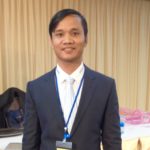 Bunly Soeung is a full-time lecturer of public administration at Svay Rieng University, Cambodia. He has also worked as a freelance research coordinator for peace research projects. He received his master’s degree in Public Administration with a focus on Public Policy in 2010 from Universitas Padjadjaran, Indonesia. Between 2013 and 2015, he was a peace research team member for the Alliance for Conflict Transformation. In 2015, he finished a master program in Higher Education at the University of Hong Kong, focusing on students’ perspective on freedom of critical inquiry in Cambodia. In 2016, he translated a 160-page book entitled “May 18 Gwangju Democratic Uprising” about the May 18th Foundation in South Korea. His primary research interests are cultural peace-building, non-violent civil resistance in Cambodia, and academic freedom. Recently, his co-authored journal article on “The Revitalisation of Buddhist Peace Activism in Post-War Cambodia” was published in the Conflict, Security & Development Journal, Volume 17. It examines how Cambodian Buddhist monks develop and maintain their normative legitimacy and connection with civilian followers by focusing on their approaches to four types of resources: religious authority, cultural knowledge, social networks, and new communication technology.
Bunly Soeung is a full-time lecturer of public administration at Svay Rieng University, Cambodia. He has also worked as a freelance research coordinator for peace research projects. He received his master’s degree in Public Administration with a focus on Public Policy in 2010 from Universitas Padjadjaran, Indonesia. Between 2013 and 2015, he was a peace research team member for the Alliance for Conflict Transformation. In 2015, he finished a master program in Higher Education at the University of Hong Kong, focusing on students’ perspective on freedom of critical inquiry in Cambodia. In 2016, he translated a 160-page book entitled “May 18 Gwangju Democratic Uprising” about the May 18th Foundation in South Korea. His primary research interests are cultural peace-building, non-violent civil resistance in Cambodia, and academic freedom. Recently, his co-authored journal article on “The Revitalisation of Buddhist Peace Activism in Post-War Cambodia” was published in the Conflict, Security & Development Journal, Volume 17. It examines how Cambodian Buddhist monks develop and maintain their normative legitimacy and connection with civilian followers by focusing on their approaches to four types of resources: religious authority, cultural knowledge, social networks, and new communication technology.
Course Title: An Introduction to Civil Resistance and Nonviolent Movements
Location: ICNC Online Platform
Course Abstract: This 5-week online course is designed to take participants through a guided progression of ideas, topics, and themes in the field of civil resistance and nonviolent movements. In particular, it examines the foundation of civil resistance, deconstructing misconceptions and structural determinism, strategy and tactics of nonviolent struggle, backfire and depression, gender dynamics, and civil resistance and corporate governance in the extractive industries in both theory and practice. The participants will be introduced to case studies of Cambodian nonviolent movements and will look at common misconceptions about civil resistance including its neglect in history and previous civil movements in Cambodia, such as the Buddhist nationalist movement under the French colonialism, Maha Ghosananda’s Dhammayietra and others. The aim of this course is not only to educate students about civil resistance and nonviolent movements that has never been introduced to any academic curriculum, but also to inspire students to see how powerful the nonviolent movements are.
Bunly’s course evaluation and learning assessment.
 Hasan Habes is an educator, activist and researcher. He is currently a Ph.D. candidate and a lecturer in Peace, Mediation and Conflict Research Program at Åbo Akademi University in Vaasa, Finland and holds a Master’s degree from the same university. He specializes in nonviolent discipline and his research examines how to transform the radical flanks’ violent behaviors to nonviolent ones in Turkey. In addition, he has a MA degree in international relations concentrating on “the impact of education in conflict resolution in Cyprus” from Eastern Mediterranean University, Cyprus.
Hasan Habes is an educator, activist and researcher. He is currently a Ph.D. candidate and a lecturer in Peace, Mediation and Conflict Research Program at Åbo Akademi University in Vaasa, Finland and holds a Master’s degree from the same university. He specializes in nonviolent discipline and his research examines how to transform the radical flanks’ violent behaviors to nonviolent ones in Turkey. In addition, he has a MA degree in international relations concentrating on “the impact of education in conflict resolution in Cyprus” from Eastern Mediterranean University, Cyprus.
He was actively involved in the Gezi resistance in Turkey in 2014 and his master’s dissertation focused on the identification and elimination of the radical flanks during a nonviolent action. In it, he proposed policy recommendations to the organizers and practitioners how to keep the nonviolent discipline during nonviolent action campaigns.
Course Title: Civil Resistance
Location: Peace, Mediation & Conflict Research Program at Åbo Akademi University in Vaasa, Finland
Course Abstract: The aim of the course is to introduce the main concepts and ideas of civil resistance and discuss various historical and contemporary cases of nonviolent campaigns and movements. The students will explore some of the common misconceptions about nonviolent struggles as well as strategies and tactics. In this way the students will learn to distinguish strategy from tactics and they will be able to relate these in the context of civil resistance. Also, students will discover how the external actors play a significant role to facilitate and support these movements. By the end of the course, the students will be able to analyze the core elements of civil resistance movements and reflect on the effectiveness of these movements and their underlying political power. The students will be able to have a better understanding of the impact of violent flanks on the nonviolent action campaigns and the importance of the nonviolent discipline. Also, the students will learn and understand about different ways that movements can fail, the causes as well as the possible alternative strategies to prevent these failures. The course will provide an interactive and structured classroom based learning environment with the activating methods techniques. So the students can become more informed observers of nonviolent conflicts and effective conveyors of civil resistance knowledge.
Hasan’s course evaluation and learning assessment
 Johnson Ching-Yin Yeung is a young human right activist in Hong Kong and former Hurford Youth Fellow at the National Endowment for Democracy. He graduated with a Master of Laws in Human Rights from the University of Hong Kong. He was the spokesman of Civil Human Rights Front, a Hong Kong civil rights alliance, and was Deputy Secretary of The Federation of Students, the leading group of the 2014 Umbrella Movement.
Johnson Ching-Yin Yeung is a young human right activist in Hong Kong and former Hurford Youth Fellow at the National Endowment for Democracy. He graduated with a Master of Laws in Human Rights from the University of Hong Kong. He was the spokesman of Civil Human Rights Front, a Hong Kong civil rights alliance, and was Deputy Secretary of The Federation of Students, the leading group of the 2014 Umbrella Movement.
Course Title: Strategic Civil Resistance Movements for Democracy and Self-Determination: Lessons for Asian Organizers
Location: ICNC Online Platform
Course Abstract: Democracy and civil liberties have faced great challenges since the third wave of democratization in Asia. Faced with improved repressive tactics used by authoritarian government against dissents and activists, this course aims at equipping activists with adequate knowledge on nonviolent civil resistances, such as the basic concept of nonviolent civil resistances, mobilization skills, power structure analysis, and strategic planning. The course is also aimed at the obstacles and challenges of civil resistance movement in theoretical framework, such as backfire theory, radical flank and military suppression. Developed by an organizer of the 2014 Umbrella Movement, this curriculum is tailored for young Asian activists who have experiences of organizing and mobilizing. Additional cases studies in Asia will be explored in order to fit the target audiences. This course is formulated in an interactive manner, students are encouraged to play stimulation games, participate into breakout discussion group, slack discussion and group learning circles. .
 Lusine Arakelyan is a founding member of the NGO Civil Consciousness. Currently she is also their Coordinator of Educational Affairs. Her bachelor’s degree is in Linguistics and Communication,with a specialization in Political Science. In 2015 she graduated from the Center for European Studies at Yerevan State University, where she was awarded the Master’s Degree of European Studies. As part of the Master’s program, she also studied at Ivane Javakhishvili Tbilisi State University. In 2012, she participated in the Brusov Student Movement, which was the first large-scale students’ movement organized in Armenia. Nonviolent action was the key element of success. After the foundation of Civil Consciousness, she has spent the last five years coordinating more than 100 non-formal education projects.
Lusine Arakelyan is a founding member of the NGO Civil Consciousness. Currently she is also their Coordinator of Educational Affairs. Her bachelor’s degree is in Linguistics and Communication,with a specialization in Political Science. In 2015 she graduated from the Center for European Studies at Yerevan State University, where she was awarded the Master’s Degree of European Studies. As part of the Master’s program, she also studied at Ivane Javakhishvili Tbilisi State University. In 2012, she participated in the Brusov Student Movement, which was the first large-scale students’ movement organized in Armenia. Nonviolent action was the key element of success. After the foundation of Civil Consciousness, she has spent the last five years coordinating more than 100 non-formal education projects.
 Lilit Makunts is currently an Associate Professor at the Russian-Armenian University in Yerevan. She earned her Ph.D. in Cognitive Linguistics specializing in Political Discourse. She teaches Sociolinguistics, Cognitive Linguistics, Discourse Analysis, and History of Nonviolent Resistance. After attending the Fletcher Summer Institute for the Advanced Study of Nonviolent Conflict in 2015, she initiated an academic course on Civil Resistance in the Department of Political Science in the fall of 2016. After about 8 years as a political board member in the Liberal Party of Armenia and the head of the youth organization (2004-2012) she realized that, without civic education and the acknowledgment of people power movements among society, no substantial democratic changes can take place. Along with academic teaching, she works as a trainer on different civil society platforms.
Lilit Makunts is currently an Associate Professor at the Russian-Armenian University in Yerevan. She earned her Ph.D. in Cognitive Linguistics specializing in Political Discourse. She teaches Sociolinguistics, Cognitive Linguistics, Discourse Analysis, and History of Nonviolent Resistance. After attending the Fletcher Summer Institute for the Advanced Study of Nonviolent Conflict in 2015, she initiated an academic course on Civil Resistance in the Department of Political Science in the fall of 2016. After about 8 years as a political board member in the Liberal Party of Armenia and the head of the youth organization (2004-2012) she realized that, without civic education and the acknowledgment of people power movements among society, no substantial democratic changes can take place. Along with academic teaching, she works as a trainer on different civil society platforms.
Course Title: Nonviolent Struggle: Why and How It Works
Location: ICNC Online Platform
Course Abstract: This is an online seminar that aims at providing civil society representatives, political activists, trainers of non-formal education and students seeking knowledge of nonviolent strategies in civil resistance. Within the framework of the seminar, the concept of nonviolent civil resistance, its most successful practices around the world, and the reasons of why and how it works will be thoroughly introduced. The course will begin with the introduction of civil resistance, its historical background and will dwell upon the common misconceptions. It will discuss the mechanisms of movement mobilization and formation as well as the factors of its sustainability. It will further discuss strategic frameworks for analyzing campaigns and movements as well as will explore issues of innovative and creative tactical choice. The importance of a well planned civil resistance will also be touched upon together with the long-lasting impact of civil resistance and its costs. The cases of various civil resistance movements in the Post-Soviet region and the main factors of instigation will also be discussed. It will focus on what can be done to make those efforts of civil resistance more strategic and effective.
Defending Paraguay’s Constitution: Setbacks, Second Thoughts and Small Victories, By David Riveros Garcia
Regina Feldman-Rights and Protests: The American Civil Rights Movement and South Africa
Regina Feldman, an ICNC High School Curriculum Fellow, developed, offered and moderated a course on the introduction to civil resistance in 2016 as part of the ICNC High School Curriculum Fellowship. As the results from course evaluations show, students found the course to be extremely beneficial and valuable for their education.
The information featured below was submitted as part of the fellowship requirement that, among others, included creating a detailed course proposal, developing curriculum content, designing evaluation tools, selecting participants and extensive moderation throughout the course.
Learn more by clicking on the topic links:
About the Curriculum Fellow
Course Abstract
Learning Gains Survey Results
 Regina Feldman currently teaches IB Twentieth Century World History and Theory of Knowledge at the Montessori High School at University Circle in Cleveland, Ohio. She taught the previous year at the Affiliated High School of Peking University in Beijing, China. Regina Feldman holds a Master of Philosophy in Ethnology, Human Biology and Communication Theory from the University of Vienna, Austria, a Master of Arts in Medical Anthropology and a Ph.D. in Cultural Anthropology from Case Western Reserve University, which were both earned as a Fulbright Scholar. She also earned a Montessori Certificate in Adolescent Studies and is IB-trained in History, Theory of Knowledge, and Extended Essay. In addition to teaching humanities at MHS, Regina Feldman functions as a Montessori Advisor and Curriculum Trainer and has helped build MHS as a Curriculum Developer, Coordinator, and Documenter since the school’s inception in 2008. She is an avid traveller, yoga practitioner, runner, and cook.
Regina Feldman currently teaches IB Twentieth Century World History and Theory of Knowledge at the Montessori High School at University Circle in Cleveland, Ohio. She taught the previous year at the Affiliated High School of Peking University in Beijing, China. Regina Feldman holds a Master of Philosophy in Ethnology, Human Biology and Communication Theory from the University of Vienna, Austria, a Master of Arts in Medical Anthropology and a Ph.D. in Cultural Anthropology from Case Western Reserve University, which were both earned as a Fulbright Scholar. She also earned a Montessori Certificate in Adolescent Studies and is IB-trained in History, Theory of Knowledge, and Extended Essay. In addition to teaching humanities at MHS, Regina Feldman functions as a Montessori Advisor and Curriculum Trainer and has helped build MHS as a Curriculum Developer, Coordinator, and Documenter since the school’s inception in 2008. She is an avid traveller, yoga practitioner, runner, and cook.
Course Title: Rights and Protests: The American Civil Rights Movement and South Africa
High School: Montessori High School at University Circle, Ohio
Abstract: This course explores struggles for rights and freedoms through two case studies, the study of the Civil Rights Movement in the United States between 1954 and the passing of the Civil Rights Act in 1965 and the study of protests against Apartheid in South Africa, beginning with the election of the National Party in 1948 and ending with first democratic general elections in 1994. Students explore the nature of discrimination, methods of nonviolent resistance and the importance of leadership and organizations or parties in civil society. This course is driven by inquiry: every week, students spend time in “Archive”, using a variety of sources – written, digital, visual –to respond to a weekly Guiding Question and build timelines to trace the evolution of rights and protests in both countries. Work in the Archive will be supported by key lessons, Socratic seminars, academic debate, documentaries, and playing of the strategic game People Power. IB-style research papers, annotated bibliographies, and critical memos, class, seminar, and debate preparation and participation are formatively and cumulatively assessed. The course closes with a Colloquium on the Big Guiding Question about the effectiveness of nonviolent resistance actions for long-term positive societal change.
Learning Gains Survey (LGS) Results:
The LGS aims to measure knowledge gains among course participants. Participants take the Pre-Course Survey at the beginning of the course and take an identical survey (Post-Course) at the end of the course. Included below are the graphed responses to the questions from the Pre-Course and Post-Course Survey showing the percentage that chose the correct answer and the percentage that chose the incorrect answer.
Learning Gains Survey Results Explained:
As you can see in the graph above, the majority of students reported having low levels of familiarity with various civil resistance struggles and tactics when completing the Pre-Course LGS at the start of the course. The average pre-score was 6.3%. However, by the time students completed the Post-Course LGS, at the end of the course, they reported much higher levels of familiarity with general civil resistance knowledge. At the end of the course the average score was 7.8%. The largest knowledge gains were in questions 1, 2, 5, and 6.
Learning Gains Survey Answer Key:
The following questions were graded on a scale of 1 to 10, with 1 indicating little to no knowledge and 10 indicating a lot of knowledge.
Learning Gains Survey Questions:
1. On a scale of 1-10, please circle the number that best represents your current knowledge of civil resistance or nonviolent movements.
2. On a scale of 1-10, identify your comfort level in speaking to others about civil resistance or nonviolent movements.
3. On a scale of 1-10, select the number that best represents your view that revolutions against brutal regimes can succeed ONLY if revolutionaries retain the option to use violent means.
4. On a scale of 1-10, select the number that best represents your view that protests, marches, and demonstrations are the ONLY civil resistance methods.
5. On a scale of 1-10, select the number that best represents your view on how successful you think civil resistance campaigns against repressive states have been in the past.
6. On a scale of 1-10, select the number that best represents your view that movements that face repression must fail.
7. On a scale of 1-10, select the number that best represents your view that in order to be successful nonviolent movements must receive support from external actors, have access to the Internet, or face a regime that is weak and divided.
8. On a scale of 1-10, select the number that best represents your view about how important you think strategic planning is in a successful civil resistance movement.
9. On a scale of 1-10, select the number that best represents your view about how important you think participation is in a successful civil resistance movement.
10. On a scale of 1-10, select the number that best represents your view about how important you think nonviolent discipline is in a successful civil resistance movement.
Paraguay
It was the night of March 31, and a Congress in flames at the hands of angry protesters was the international image for the political catastrophe that was ensuing in Paraguay. After months of threatening to pass a bill that would approve re-election for the executive, a majority of congressmen from the ruling Colorado Party decided it was time to test how the nation would react to their violation of the Constitution.
Destruction is a powerful attention grabber but a weak building block to fix a political crisis; its life is as short as the flames that ate part of Congress that day. Provoking people to destroy becomes a convenient excuse to repress, to instill fear, and to concentrate power. Sadly, the image of destruction too often becomes the main story, while most constructive stories are glossed over in the midst of chaos, and thus, remain forgotten to the protagonists and the world.
Indignation in Cuidad del Este
The first hours of April brought two tragedies. In Asuncion, a police officer trespassed the headquarters of a political party and shot dead one of its young leaders. In Ciudad del Este, the Police’s Especial Operations Group (aka GEO for its Spanish acronym) ignored the “no violence” chants and opened fire using rubber bullets on protesters who were peacefully laying on the floor resisting GEO’s advances. One could feel anger, indignation, frustration, and desire for vengeance against such cowardice: violence would increase and with it the potential for an increased death toll.
People’s rage took over social media the morning of April 1. In Ciudad del Este, the meeting place in the afternoon was the public square right across from the Municipality’s building. The goal was to resist the bill for re-election; the means and the leadership were less clear. That is why, along with my team members at reAcción, an anti-corruption organization, we decided to join the protests in the public square. We knew violence would be the first option for most citizens, especially the youngest ones, and we would try to channel that violence into something else.
<iframe width=”640″ height=”360″ src=”https://www.youtube.com/embed/yQVChsVaInA” frameborder=”0″ allowfullscreen></iframe>
Young protesters gathering to block the bridge connecting Paraguay with Brazil in the city of Ciudad del Este, effectively cutting off one of the most important commercial routes for the country.
Steps We Took to Get Organized
At the onset of our involvement, our team organized to:
- Hold a workshop in a public square to share knowledge about the importance of nonviolent discipline and how to maintain it.
- Form organizing committees and define victory as successive actions that would convince more citizens to join the cause.
- Record a proclamation in defense of our Constitution.
- Engage peacefully in marches and blocking streets.
- Contact local media, through our organizing committees, with a united message to convey our movement’s goals.
- Produce a video for social media so other Paraguayans could learn about our goals and nonviolent methods.
Challenges We Faced
- Over the course of several days, we began encountering a number of challenges, mainly:
- Political parties positioning their people to attempt to take over leadership of the movement and organize concurrent public demonstrations.
- These parties’ actions undermined our committees’ efforts to engage in nonviolent action in the pursuit of our stated goal; they caused confusion and weakened trust among our participants.
- Some protesters misunderstanding our calls for the use of nonviolent action and maintaining nonviolent discipline as passive and insufficient.
These challenges, and others, led to a frustrating and relatively quick disintegration of the movement.
However, in hindsight, we achieved a major goal: keeping protesters from acting violently, and perhaps helping prevent greater-scale acts of violence during a time of national turmoil.
By the end of April, President Cartes did eventually abandon his bid for re-election. I was left wondering whether this was because of the (albeit uncoordinated and intermittent) citizen demonstrations or simply due to pressure from the international community. Either way, I am proud of the work our team did to keep violence from breaking out. And it is my hope that our actions helped others in Paraguay realize that people can wield power in a much smarter and strategic way than engaging in violence, which I believe is an important step for long-lasting change.
Minds of the Movement Submission Guidelines
Blog Objectives
- Highlight cutting-edge developments in the field of civil resistance;
- Disseminate new research, ideas and resources related to the study and practice of civil resistance, and explore their implications;
- Offer readers practical knowledge to help them study, teach, practice, produce media coverage of, and/or engage in policy discussions related to civil resistance;
- Identify areas of complementarity between civil resistance and other disciplines, as well as areas for debate—then serve as a platform for this debate;
- Provide commentary and analysis about international news from a civil resistance perspective, and about how civil resistance shapes broader global trends (though it will not be a news blog per se);
- Tie civil resistance into ongoing policy conversations and to the work of (I)NGOs;
- Bring attention to successful nonviolent struggles, particularly lesser-known ones;
- Convey knowledge and experience of activists and scholars who are active in the field;
- Reinvigorate archives which have new-found relevance and get them into circulation.
Target Audiences
The primary audiences are activists, organizers, and scholars worldwide. The policy community, members of INGOs and journalists are also important audiences.
Content Criteria
Blog posts should be up to 700 words (about two pages, 12 point font, double-spaced). Content should be focused on people’s capacity for nonviolently organizing and holding power accountable. Because blog posts are short, they should focus on, for example, one experience and lessons learned from participation in a movement, as opposed say, an exhaustive recounting of a conflict or issue. Content should be instructive and have direct relevance for one or more of the target audiences described above.
When focusing on a particular movement or case study, blog posts should focus on facts, analysis, and/or lessons learned. We do not publish pieces that are driven mostly by advocacy and political opinions. There are lots of places online that publish advocacy and opinions—what distinguishes us is our first-rate analysis and strategic examination of civil resistance.
Also, please remember that it is not necessary to give full historic background of the conflict you’re writing about (if applicable). Instead, your blog post should focus on an experience, a moment or an idea. What makes the blog post unique content is its focus on nonviolent action and nonviolent movements, so those are the elements that we want to emphasize.
Guidance on Linking
Anchor linking phrases is widely accepted as an effective practice for online media. The purpose of linking is to provide further reading; to bring the reader to a primary source of a quote or other information; to link up with other sources and ongoing news or events; to lighten up a post by allowing the author to avoid going into detail; to help substantiate a claim; and many other purposes. We would encourage bloggers to consider the following points:
- All facts and events that are not commonly known, as well as opinions, should be properly cited with a link to a reputable source. If you do not have a link, you can include an endnote.
- When linking, please bear in mind that the blog is not designed to enable excessive self-promotion or to promote commercial products.
- Link to English-language sites whenever possible. If a link is to a non-English site, please state so in brackets.
Style and Formatting Recommendations
In terms of substance, blog posts should aim to:
- Be mindful of any confidential details such as activists’ names or upcoming direct actions of an ongoing struggle that may compromise security. When in doubt, consult with the source.
- Be dynamic, when possible incorporating media and multimedia. (Note: All image and other multimedia sources should be cited and permission documented in your 1st draft.)
In terms of writing style, blog posts should:
- Have a conversational, modern feel. Explain briefly any academic, organizational or wonky jargon if used.
- Lead with the ‘punchline’ and relevance of the topic to the reader, with the technical details following (and plenty of links to further resources for those who are interested).
- Use stimulating and descriptive language to rein readers in from the first paragraph — without being sensational or ‘shouting’ at readers.
- Be accessible to non-specialists. Not all readers will be specialists, but most will have had some formal or informal education and/or experience on the topic of civil resistance. There may be some exceptions to writing accessibly when focusing on certain specialized academic research.
- Be written in US or UK English (both are accepted).
- Avoid excessively complex or long sentences and paragraphs.
In terms of format, blog posts should:
- Be up to 700 words long. Some exceptions can be made for long-form content.
- The first paragraph should contain similar key words as the title.
- Aim to have a punchy title of four to eight words in length, which includes key words, such as geographic setting and the aspect of civil resistance movement explored.
- Avoid excessive bullet point use.
Submission and Review Process
Although submission/review processes may vary, bloggers may generally expect the following:
- Blogger submits a topic via email to the editor for review. Turnaround for review will be around 1 to 3 working days, depending on the projected publication date of the post.
- Upon approval, blogger submits a full first draft of the post via email to the editor for review by agreed-upon deadline. Turnaround for review will take around 1 to 8 days, depending on the projected publication date.
- Please see below (“Other Items to Submit”) for a list of all items required at time of first draft submission. Please note that incomplete submissions may incur unforeseen delays in the publishing timeline.
Contact: editor [at] nonviolent-conflict.org
Permissions
All blog posts are published under the Creative Commons license “Attribution-NonCommercial-NoDerivatives 4.0 International” (CC BY-NC-ND 4.0). This means that readers will be able to copy and redistribute the material in any medium or format, in whole or in part, giving appropriate credit, and for noncommercial purposes only. If the material is remixed, transformed or built upon, readers may not distribute the modified material. If you have any questions or concerns, see the Creative Commons license here or please contact the editor.
If you or your organization wishes to republish our content on a regular basis, we want to hear from you! Please contact the editor.
Other Items to Submit
For your first draft submission to be considered complete, please also submit (or ensure that we have on file):
- A biography of up to 100 words (a headshot photo is optional but highly encouraged).
- A feature image, and its source, for your blog post (high resolution only, image use permission is required; we encourage sharing your own photography if applicable).
- Any multimedia (optional) such as videos should be submitted via Dropbox. Email the editor for further information.
Late Submissions Policy
Any late submissions are subject to later publication at the editor’s discretion.
Sign Up for Our Blog Newsletter
Introducing Minds of The Movement, An ICNC Blog on the People and Power of Civil Resistance
Does Protesting Do Any Good? By Tom Hastings
Our Civil Resistance Journeys, by Amber French
Memory and Movements in Building Singapore’s Civil Society, by Kirsten Han
Introducing Minds of the Movement, An ICNC Blog on the People and Power of Civil Resistance
Freedom Over the Airwaves
English publication of La liberté au bout des ondes, 2nd edition
Translated by Elizabeth Libbrecht
Foreword by Adam Roberts
Afterword by Howard Barrell
Original (French) publication: Nouveau Monde Editions (2009)
English publication: ICNC Press, February 17, 2017
Free Download
Purchase a Print Copy
Purchase an e-book (Nook | Kindle)
This book on the relationship between communications and nonviolent resistance captures a new understanding of the events that led ultimately to the fall of the authoritarian system in communist Central and Eastern Europe in 1989. In particular, it analyzes history-making acts of resistance and the movements that propelled them in Budapest in 1956, Prague in 1968, Gdansk in 1980 and East Berlin in 1989, in their own historical continuum.
As we evaluate each crisis in relation to the others, we find that beyond cultural and national differences among the countries of the Soviet sphere, the knowledge of how to develop resistance was built up in a little over three generations — a know-how that tied together means of opposition with means of media and communication. Non-provocative, nonviolent methods of action came to supersede uncontrolled forms of violence, and even the mere temptation of armed struggle. From 1968 to 1989, the empowerment of civil resistance movements in Central Europe was witnessed—a phenomenon that strengthened the re-emergence and rebuilding of “civil society.”
In a new Afterword penned for the English translation, Howard Barrell extends this evaluation to encompass the role of social media and digital technology in more recent and potential resistance struggles. This preeminent study offers a rare addition to understanding the transformation of half a continent.
Civic Education: A Course Taught by ICNC High School Curriculum Fellow 2016
Ahmadullah Archiwal, an ICNC High School Curriculum Fellow, developed, offered and moderated a course on the introduction to civil resistance in 2016 as part of the ICNC High School Curriculum Fellowship. As the results from course evaluations show, students found the course to be extremely beneficial and valuable for their education.
The information featured below was submitted as part of the fellowship requirement that, among others, included creating a detailed course proposal, developing curriculum content, designing evaluation tools, selecting participants and extensive moderation throughout the course.
Learn more by clicking on the topic links:
About the Curriculum Fellow
Course Abstract
Learning Gains Survey Results
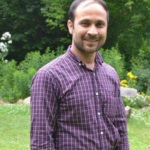 Ahmadullah Archiwal has two Masters (the first in Journalism from the University of Peshawar in Pakistan and the second in International Affairs from the New School University in New York). He has been leading a small organization, OSCAR, which has been the flagship of nonviolent civic mobilization in Afghanistan for the last five years. They are the only organization teaching nonviolence in Afghanistan and have done pioneering work such as generating important contextual materials on the topic, including translating relevant books from English into local languages, writing a book on nonviolence, and conducting relevant workshops in different parts of the country.
Ahmadullah Archiwal has two Masters (the first in Journalism from the University of Peshawar in Pakistan and the second in International Affairs from the New School University in New York). He has been leading a small organization, OSCAR, which has been the flagship of nonviolent civic mobilization in Afghanistan for the last five years. They are the only organization teaching nonviolence in Afghanistan and have done pioneering work such as generating important contextual materials on the topic, including translating relevant books from English into local languages, writing a book on nonviolence, and conducting relevant workshops in different parts of the country.
Course Title: Civic Education
High School: Umara Khan High School, Afghanistan
Abstract: This course aims to equip the students with a basic understanding of nonviolent civic mobilization, in addition to culturally specific tactics of nonviolent resistance. We will begin by discussing the history of nonviolent resistance, examining its effectiveness and the common misconceptions surrounding it. The course will then move to focus on forms of nonviolent resistance that have roots in Afghan culture. We will be reinforcing the idea that nonviolent civic mobilization has historically been used by Pashtuns and others living in the region. Our discussions will range in topic from Abdul Ghafar Khan to Pashtun Nationalism to contemporary civil resistance struggles in the Islamic world and beyond. We will examine the idea that nonviolent resistance is applicable not only in democratic societies, but in societies of all political makeups. The overall goal of the course is to reduce the group’s vulnerability to joining insurgency by educating them in nonviolent civic mobilization.
Learning Gains Survey (LGS) Results:
The LGS aims to measure knowledge gains among course participants. Participants take the Pre-Course Survey at the beginning of the course and take an identical survey (Post-Course) at the end of the course. Included below are the graphed responses to the questions from the Pre-Course and Post-Course Survey showing the percentage that chose the correct answer and the percentage that chose the incorrect answer. 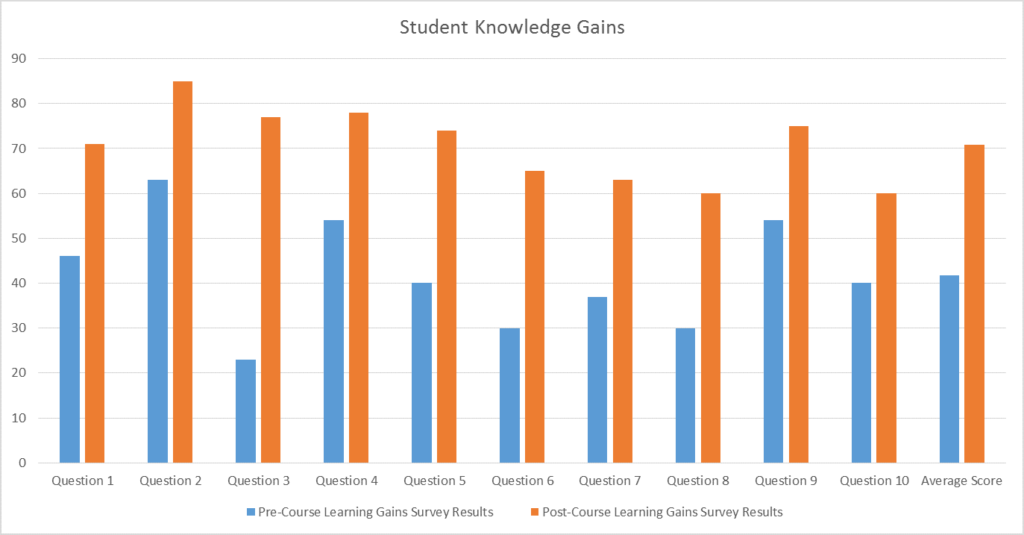
Learning Gains Survey Results Explained:
As you can see in the graph above, the majority of students reported having low levels of familiarity with various civil resistance struggles and tactics when completing the Pre-Course LGS at the start of the course. The average pre-score was 42%. However, by the time students completed the Post-Course LGS, at the end of the course, they reported much higher levels of familiarity with each struggle listed and general civil resistance knowledge. At the end of the course the average score was 71%, which was a 29% increase.
Learning Gains Survey Answer Key:
The following questions were graded using “correct” or “incorrect” answers.
Learning Gains Survey Questions:
1. Nonviolent civic mobilization is about pacifying the target group
2. Nonviolent civic mobilization takes place without taking into consideration the political and social condition in a society
3. Nonviolent civic mobilization campaigns are more effective than violent campaigns
4. Nonviolent civic mobilization campaigns are waged only for political motives
5. A charismatic leader is a must have for the success of a nonviolent campaign
6. Conflict is inevitable in human life
7. It’s only the rulers who have power in a society
8. The impact of violent campaigns is durable and long lasting
9. All nonviolent civic mobilization movements take place spontaneously
10. Marches and protests are the most effective means for nonviolent campaigns
Go back to the main ICNC High School Curriculum Fellowship page.
Russian dissident Vladimir Kara-Murza talks about nonviolent resistance
ICNC sat down recently with renowned Russian dissident Vladimir Kara-Murza, vice chairman of the pro-democracy NGO, Open Russia. Kara-Murza, who has been in the Putin regime’s crosshairs for years, shared his thoughts on various aspects of nonviolent civil resistance in his native country.
Venezuela’s naked protester and other forms of nonviolent resistance
Rwandan women’s activist to challenge Kagame in August polls
Syria: Support for nonviolent fighters key to ending the war
James Lawson Institute
This is a legacy page for the James Lawson Institute (JLI), which ICNC organized in 2013 and 2014.
ICNC organized and ran the James Lawson Institute in 2013 and 2014 as an eight-day program for North American activists and organizers dedicated to sharing knowledge of movement organizing and civil resistance. You can learn more about its process of development here. Following tremendous success with ICNC’s incubation, the James Lawson Institute launched as an independent entity in 2017 offering intensive study of civil resistance to activists in the North American context. Information about the James Lawson Institute and its programs can be found here.
Below is the announcement of the 2014 JLI, organized by ICNC.
The James Lawson Institute:
An Eight-Day Experience in Strategic Evaluation of Nonviolent Civil Resistance
August 16-23, 2014 | Nashville, Tennessee
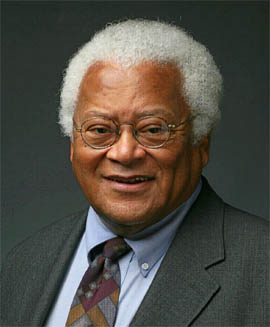 In the 1960s, the Reverend James Lawson organized and led one of the most effective campaigns of nonviolent civil resistance in the 20th century: the Nashville lunch counter sit-ins for the US Civil Rights Movement. In the years that followed he was involved in strategic planning of numerous other major campaigns and actions and was called “the mind of the movement” and “the leading theorist and strategist of nonviolence in the world” by Dr. Martin Luther King, Jr.
In the 1960s, the Reverend James Lawson organized and led one of the most effective campaigns of nonviolent civil resistance in the 20th century: the Nashville lunch counter sit-ins for the US Civil Rights Movement. In the years that followed he was involved in strategic planning of numerous other major campaigns and actions and was called “the mind of the movement” and “the leading theorist and strategist of nonviolence in the world” by Dr. Martin Luther King, Jr.
The US Civil Rights movement, the US Labor movement in the 1930s, the women’s suffrage movement, the anti-nuclear movement, and other move ments in North America and abroad in the decades since did not just engage in activism. They organized people, mobilized them by the millions, and galvanized participation from a broad cross section of society. Collectively, these movements provide a model for how nonviolent change can be organized to win rights, justice and change in very adverse conditions.
ments in North America and abroad in the decades since did not just engage in activism. They organized people, mobilized them by the millions, and galvanized participation from a broad cross section of society. Collectively, these movements provide a model for how nonviolent change can be organized to win rights, justice and change in very adverse conditions.
The James Lawson Institute (JLI) looks at these past movements, and numerous contemporary ones around the world, from a strategic perspective, and engages participants in depth about a wide variety of aspects of organizing and activism in North America. It is a structured seminar to discuss what kinds of strategies, tactics and practices are effective for people organizing movements and waging civil resistance campaigns.
TOPICS COVERED:
Topics to be discussed include:
- The Current State of North American Organizing and Activism
- The Core Dynamics of Nonviolent Civil Resistance
- Movement Formation, Sustainability, and Coalition Building
- Strategy, Tactics, and Planning
- Movement Language and Media
- Managing Repression, Radical Flanks, and Maintaining Nonviolent Discipline
The content is a mixture of theory and practice and is based on the experiences of numerous activists and organizers around the world as well as leading scholarship in the field of social movement and civil resistance. The daily schedule usually includes two presentations and two exercises, as well as an evening program. We will learn from case studies, theoretical frameworks, participant exercises, planning tools, academic research, and each other.
Sessions will be facilitated by James Lawson and the advisors and staff of the International Center on Nonviolent Conflict (ICNC).
APPLICATIONS:
Who Should Apply: North American organizers and activists who are working to organize within the United States or Canada.
The educational environment of the Institute will be rigorous, and we encourage participants to apply who want to share, learn, and work hard for the full eight days. Also, at least half of the learning during the week will draw from participants’ experiences and insights so a good base of field work and/or study in grassroots organizing, movement building, campaign organizing, nonviolent civil resistance, media work, or related areas will be very helpful.
The original application deadline of April 13, 2014 has now been extended to April 20, 2014. No applications will be accepted after April 20, 2014.
You can stay up to date with all the news on the James Lawson Institute (JLI) 2014 on our Facebook page and Twitter feed. You can view the JLI 2014 flyer here. If you have any questions, or would like to request a paper application, please send an email to jli@nonviolent-conflict.org .
When: August 16-23, 2014
Where: Scarritt Bennett Center, Nashville,Tennessee
COST AND SCHOLARSHIPS:
Registration fees for participants are as follows:
$500 – Individuals employed by media, commercial or government organizations
$350 – Individuals with large nonprofit organizations and foundations
$200 – Individuals with local nonprofit and educational organizations
$100 – Organizers, activists and individuals not institutionally affiliated
The JLI registration fee is the only charge requested. Accommodation, all meals, and learning materials for the entire course are paid by the International Center on Nonviolent Conflict (ICNC). Accommodation is in the dormitories at the Scarritt Bennett Center and meals are arranged through the Scarritt Bennett Center.
In addition to the JLI registration fee, participants or their sponsoring organizations are expected to cover their own travel expenses to and from Nashville, Tennessee. However, if an applicant or sponsoring organization cannot afford to pay for travel and/or registration costs, need-based scholarships are available and can be applied for in your JLI application.
Learn more about Rev. James Lawson and nonviolent civil resistance:
“‘A Totally Moral Man'”: The Life of Nonviolent Organizer Rev. James Lawson” by Peter Dreier, Truthout.org, August 15, 2012
ICNC Special Report Series
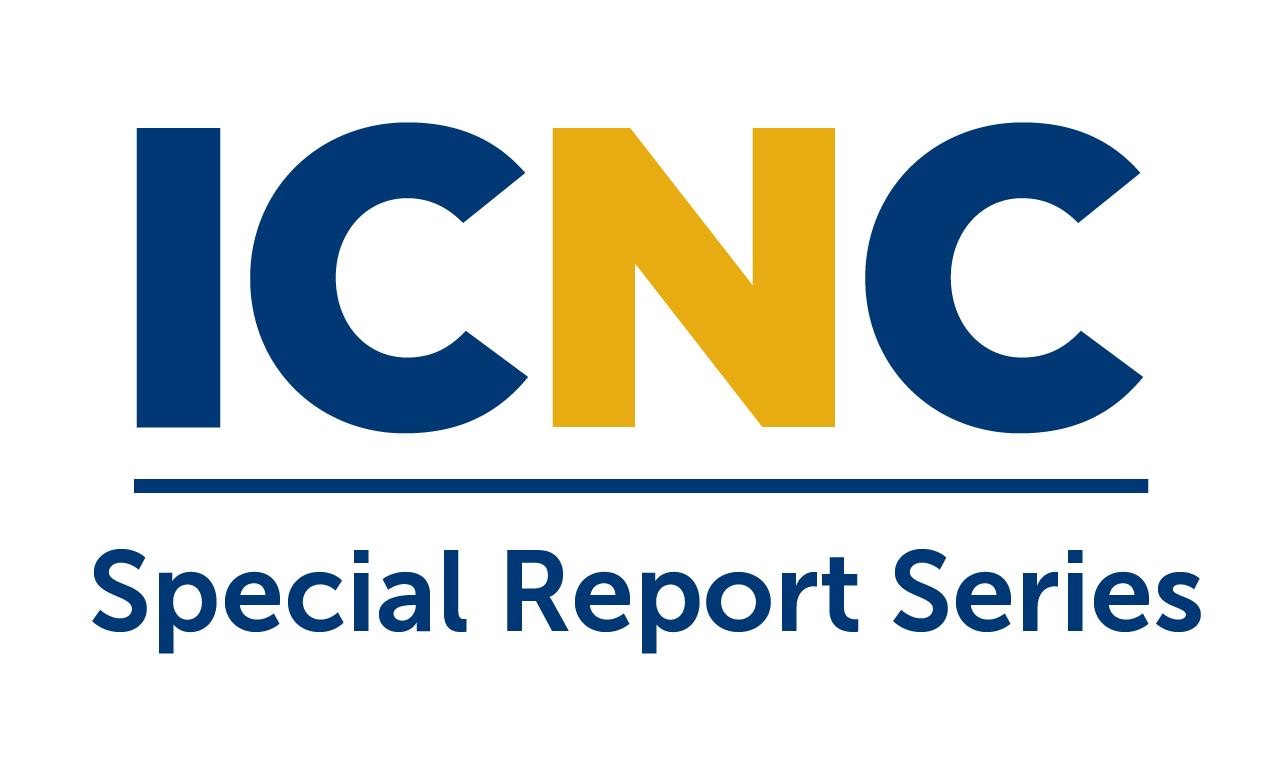 Launched in 2017, ICNC’s Special Report Series aims to bridge the gap between academic, policy and other practitioner communities. ICNC Special Reports draw on cutting-edge research to cover topics pertinent to the ongoing policy discussions and practitioners’ debates around issues relevant to civil resistance movements, grassroots campaigns and nonviolent struggles taking place around the world.
Launched in 2017, ICNC’s Special Report Series aims to bridge the gap between academic, policy and other practitioner communities. ICNC Special Reports draw on cutting-edge research to cover topics pertinent to the ongoing policy discussions and practitioners’ debates around issues relevant to civil resistance movements, grassroots campaigns and nonviolent struggles taking place around the world.
Published Reports
Powering to Peace: Integrated Civil Resistance and Peacebuilding Strategies
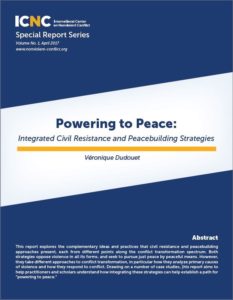 By: Véronique Dudouet
By: Véronique Dudouet
Date of publication: April 2017 (44 pages)
Series Editor: Maciej Bartkowski, Senior Director for Education and Research
Volume Editor: Amber French, Manager of Editorial Initiatives
This report explores the complementary ideas and practices that civil resistance and peacebuilding approaches present, each from different points along the conflict transformation spectrum. Both strategies oppose violence in all its forms, and seek to pursue just peace by peaceful means. However, they take different approaches to conflict transformation, both in their analyses of the primary causes of violence and how they respond to conflict. The report then describes how civil resistance and peacebuilding can work in tandem throughout the four stages of transformation of asymmetric conflicts. Concrete examples are provided to illustrate the respective functions of constructive conflict (through civil resistance) and conflict mitigation (through peacebuilding) in transitions from latent to overt conflict, from resistance to dialogue and negotiation, and from conflict settlement to sustainable peace.
Download free PDF
Buy the book
Forthcoming Special Reports
ICNC is excited to announce a forthcoming special report by Erica Chenoweth and Evan Perkoski entitled “Nonviolent Resistance & the Prevention of Mass Atrocities in Popular Uprisings.” The report is expected to be released in the ICNC Special Report Series in late fall 2017.
Abstract
Since the Arab Spring, states, civilians, and many nongovernmental organizations have watched as contentious events play out across the globe. Many wondered how these events would unfold, which would succeed, and just as significantly, whether those contesting power would come to be victimized by the very governments they were protesting against. In this report we seek to understand why some popular uprisings experience mass killings and others do not. In particular, we focus in on the characteristics of violent and nonviolent uprisings to better understand the types of contentious events that are most likely to elicit government crackdowns. Analyzing new data on state violence and popular uprisings from 1955 to 2013, we find that mass killings are associated with particular country and regime characteristic. Preexisting subgroup discrimination and certain types of authoritarian regimes, for instance, are important predictors of governmental violence. Yet, characteristics of popular uprisings are significant as well. Not every uprising is equally threatening to regime elites, and some – like violent movements with foreign support – are much more likely to elicit mass killings than others. In turn, nonviolent resistance, though oftentimes constituting an even greater challenge to oppressive regimes than armed struggle, tends to also decrease the likelihood of mass atrocities. These findings therefore have important implications for policymakers seeking to prevent mass atrocities, and for activists seeking to stay safe in the course of a popular uprising.
Nonviolent Action and the “New Story”: Completing the Circle for an Unstoppable Movement
This webinar occurred on Thursday, June 22, 2017 from 12-1 p.m. EST.
Watch the webinar:
Webinar summary:
We are in the throes of a “paradigm shift” from an “old story” of materialism and separateness, in which competition and violence are inevitable, to a “new story” drawing on both new scientific understandings and ancient wisdom traditions that value nonviolence. In this new story, we can see again that we are deeply connected to one another and the natural world, and that the kind of nonviolent and just society Martin Luther King called the “Beloved Community” is not just desirable, but possible. This growing view, promoted by thought leaders like Thomas Berry and Joanna Macy, encourages a “Great Turning” in how we see and engage the world, and it does so at a level deeper than just rational argument. It aims, as Gandhi said, to “move the heart also.”
At the same time, nonviolent action and civil resistance are spreading rapidly around the world and new strategies with innovative tactics, newly empowered communities, new institutions, and new victories for justice, freedom, and rights are being won in ways that the old story would say is impossible.
In this webinar, we will discuss why the times are propitious for a vital change in the cultural stories we tell ourselves and will explore the role of nonviolent action in both completing the story and getting it accepted.
This connection is too often neglected. Currently, the social theorists working on the new story know little about nonviolent social change movements. Many nonviolent movement organizers and theorists do not pay much attention to either the new story or the underlying cultural assumptions that support or hinder movements for social change. What could be accomplished if both efforts realized their overlap and connection to each other? We are ready for a breakthrough!
Presenter:
 Professor Michael Nagler is the founder and president of The Metta Center for Nonviolence. He also serves as the co-host of Nonviolence Radio, which airs every other Friday on KWMR FM radio, which you can subscribe to via iTunes or Stitcher. In addition, Nagler is editor of Daily Metta, a daily reflection on Gandhi’s words which you can find at this link. He is also the author of The Search for a Nonviolent Future and The Nonviolence Handbook, among other works.
Professor Michael Nagler is the founder and president of The Metta Center for Nonviolence. He also serves as the co-host of Nonviolence Radio, which airs every other Friday on KWMR FM radio, which you can subscribe to via iTunes or Stitcher. In addition, Nagler is editor of Daily Metta, a daily reflection on Gandhi’s words which you can find at this link. He is also the author of The Search for a Nonviolent Future and The Nonviolence Handbook, among other works.
Relevant Readings:
- David Loye, Ed. The Great Adventure: Toward a Fully Human Theory of Evolution. SUNY, 2004.
- Frans de Waal. The Age of Empathy: Nature’s Lessons for a Kinder Society. Random House, 2010
- David Korten. The Great Turning: From Empire to Earth Community. 2007
- Erica Chenoweth and Maria Stephan. Why Civil Resistance Works: The Strategic Logic of Nonviolent Conflict. Columbia University, 2011.
- Michael Nagler. The Search for a Nonviolent Future. New World Library, 2001.
Hungary: Thousands in Budapest protest legislation targeting Soros-founded university
Protests sweeping South America show rising anti-government anger
Turkey arrests dozens over referendum protests
France: Chinese-French millennials protest police shooting
What Uganda’s Poor and “Under-Educated” Activists Can Teach People Resisting Autocrats Across the World
This “Voices from the Field” webinar occurred on Wednesday, May 24 from 12-1 p.m. EST.
Watch the webinar below:
Webinar summary:
This webinar will discuss ongoing struggles in Uganda, including successes in organizing and training peasant farmers, as well as the role of activists and leaders from the informal transportation sector. These campaigns are led and waged by the most underprivileged groups in society, with counterparts across the global south. These budding and sustained movements are evidence that marginalized community-led movements add longevity and effectiveness to broader struggles for change.
Presenters:
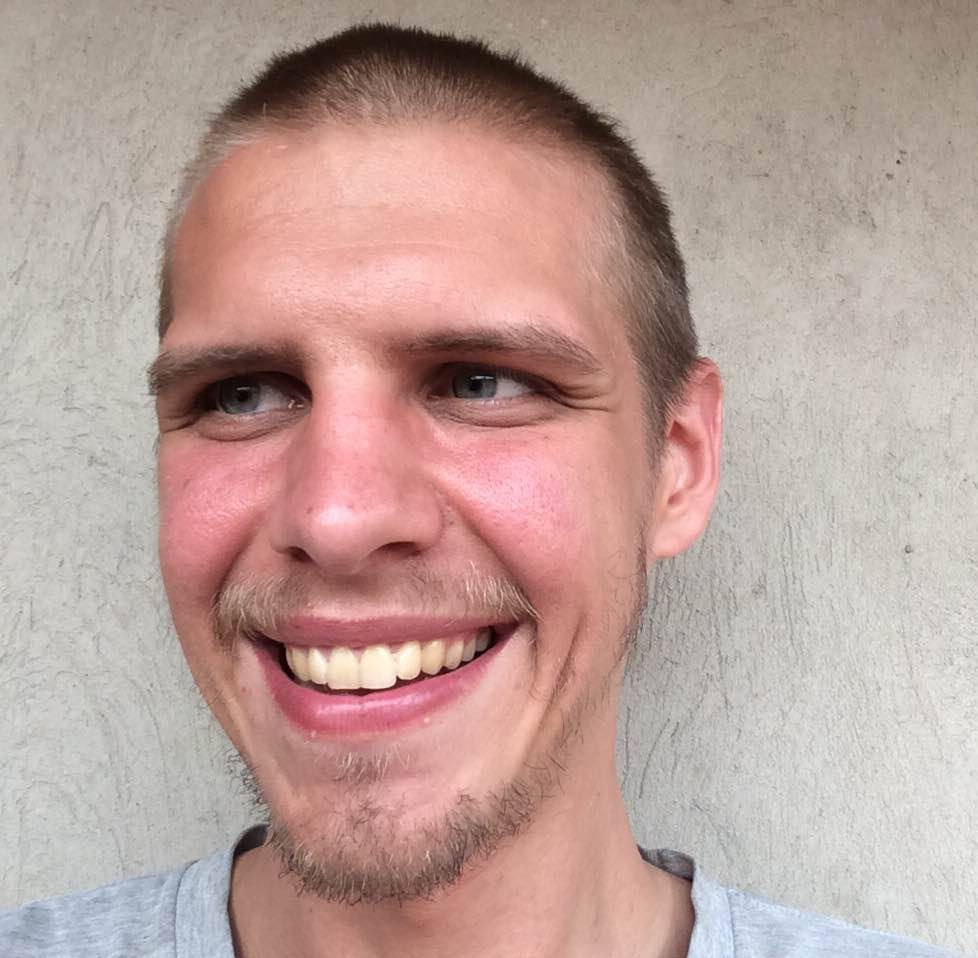 Phil Wilmot is husband to Suzan Abong Wilmot. Together, they co-founded Solidarity Uganda with a group of Ugandan activists. The organization aims to train social change and environmental advocacy groups throughout Uganda in the skills, methods, and concepts of nonviolence. Phil and Suzan reside in Lira, Uganda with their daughter Aceng Nadia. They have been working with a number of campaigns and movements around the country, including informal transport workers, farmers, urban activists, and others to teach nonviolent resistance, strategies and tactics and to build people’s power to improve people’s lives in local communities in Uganda. He has trained hundreds of people in nonviolent strategy and movement building, especially in East Africa. He writes for Waging Nonviolence and Mobilisation Lab and recently published a book on his 2014 detainment in a Ugandan jail called, A Wolf Dressed in Sheepskin: A White Guy’s Dilemma in a Ugandan Jail Cell. He is also an advisor for Beautiful Rising and one of the LIN 2016 Fellows, along with Suzan Abong Wilmot and Daniel Tulibagenyi.
Phil Wilmot is husband to Suzan Abong Wilmot. Together, they co-founded Solidarity Uganda with a group of Ugandan activists. The organization aims to train social change and environmental advocacy groups throughout Uganda in the skills, methods, and concepts of nonviolence. Phil and Suzan reside in Lira, Uganda with their daughter Aceng Nadia. They have been working with a number of campaigns and movements around the country, including informal transport workers, farmers, urban activists, and others to teach nonviolent resistance, strategies and tactics and to build people’s power to improve people’s lives in local communities in Uganda. He has trained hundreds of people in nonviolent strategy and movement building, especially in East Africa. He writes for Waging Nonviolence and Mobilisation Lab and recently published a book on his 2014 detainment in a Ugandan jail called, A Wolf Dressed in Sheepskin: A White Guy’s Dilemma in a Ugandan Jail Cell. He is also an advisor for Beautiful Rising and one of the LIN 2016 Fellows, along with Suzan Abong Wilmot and Daniel Tulibagenyi.
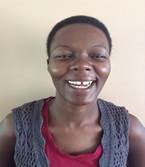 Scovia Arinaitwe is a director and trainer of Solidarity Uganda. An organizer with the Women’s Movement and The Jobless Brotherhood, Scovia works with people of all social classes in Kampala. She ran an activist-centered rapid response system for political prisoners which also functioned to build bridges between movements.
Scovia Arinaitwe is a director and trainer of Solidarity Uganda. An organizer with the Women’s Movement and The Jobless Brotherhood, Scovia works with people of all social classes in Kampala. She ran an activist-centered rapid response system for political prisoners which also functioned to build bridges between movements.
Nonviolent Direct Action: A Course Taught by ICNC High School Curriculum Fellow 2016
Elizabeth “Betsy” Cepparulo, an ICNC High School Curriculum Fellow, developed, offered and moderated a course on the introduction to civil resistance in 2016 as part of the ICNC High School Curriculum Fellowship.
The information featured below was submitted as part of the fellowship requirement that, among others, included creating a detailed course proposal, developing curriculum content, designing evaluation tools, selecting participants and extensive moderation throughout the course.
Learn more by clicking on the topic links:
Go back to the main ICNC High School Curriculum Fellowship page.
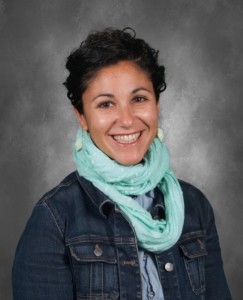 Elizabeth “Betsy” Cepparulo is a History teacher at Wilmington Friends School, in Wilmington, Delaware. She specializes in a course called Global Peace and Justice, which teaches world history through topics such as women’s rights, civil disobedience, social justice, and peace in a time of conflict. Prior to teaching, Betsy was an attorney in Pennsylvania for four years, focusing mainly on family law and criminal defense. She has her BA from Skidmore College, her JD from Temple University, and her Masters in Education Policy and Leadership from Stanford University.
Elizabeth “Betsy” Cepparulo is a History teacher at Wilmington Friends School, in Wilmington, Delaware. She specializes in a course called Global Peace and Justice, which teaches world history through topics such as women’s rights, civil disobedience, social justice, and peace in a time of conflict. Prior to teaching, Betsy was an attorney in Pennsylvania for four years, focusing mainly on family law and criminal defense. She has her BA from Skidmore College, her JD from Temple University, and her Masters in Education Policy and Leadership from Stanford University.
Course Title: Nonviolent Direct Action
High School: Wilmington Friends School, Delaware
Abstract: In this course, students will explore civil resistance movements from both practical and personal standpoints. Practically, students will learn concrete steps to engaging in a nonviolent direct action (NVDA) campaign. This will differentiate civil resistance and NVDA from passivity, which is sometimes confused with peaceful resistance. Personally, students will study Gandhi and Indian Independence, James Lawson and MLK Jr with the Civil Rights movement, and finally Colombian civil resistance in the face of violence. Students will write their own NVDA plans, contemplate a “peace force,” and explore the pros and cons of fighting violence and oppression with active peace. In the end, students will be able to articulate concrete steps and nuanced perspectives in ending conflict with civil resistance.
Learning Gains Survey Results:
The Learning Gains Survey aims to measure knowledge gains among course participants. Participants take the Pre-Seminar Survey at the beginning of the course and take an identical survey (Post-Seminar) at the end of the course. Included below is the graphed responses to the questions from the Pre-Seminar and Post-Seminar Surveys. In general, the surveys illustrate a positive trend in the knowledge gains achieved by participants as a result of the course.
Learning Gains Survey Answer Key:
The following questions were answered on a scale of 1-5, where:
1= None 2 = A little bit 3= adequate 4= Good 5 = Excellent
Learning Gains Survey Questions:
- Rate your level of familiarity with nonviolent direct action as a specific strategy for achieving change
- Rate your level of familiarity with the definition of Nonviolent direct action
- Rate your level of familiarity with Gandhi’s methodology for achieving nonviolent civil resistance
- Rate your level of familiarity with India’s struggle for independence
- Rate your level of familiarity with James Lawson’s techniques for nonviolent civil resistance
- Rate your level of familiarity with Martin Luther King, Jr’s techniques for nonviolent civil resistance, specifically his four-step plan
- Rate your level of familiarity with nonviolent direct action during the civil rights movement in the American south
- Rate your level of familiarity with using civil resistance against violent groups
- Rate your level of familiarity with the “comunidades de paz,” in Colombia and their methods of civil resistance
- Rate your level of familiarity with “peace forces” as an alternative for a military army
- Rate your level of interest in nonviolent civil resistance as an alternative to war
- Rate your likelihood of using nonviolent tactics in the future to create change that you believe in
Learning Gains Survey Results Explained:
As you can see in the graph above, the majority of students reported having low levels of familiarity with various civil resistance struggles and tactics when completing the Pre-Seminar LGS at the start of the course. However, by the time students completed the Post-Seminar LGS, at the end of the course, they reported much higher levels of familiarity with each struggle listed and general civil resistance knowledge. The overall civil resistance knowledge level of the students more than doubled as a result of their experience in this course.
Go back to the main ICNC High School Curriculum Fellowship page.
Philippines’ president Rodrigo Duterte reignites martial law fears
French Guiana: Launches from Kourou temporarily suspended by social unrest
U.K.: Solidarity with Europe as 100,000 march on parliament
Venezuela: Ranks of political prisoners grow as democracy ebbs
Hungary: Thousands march in support of university in Budapest
Transforming Women through Civil Resistance and Nonviolent Activism
This “Voices from the Field” webinar occurred on Wednesday, May 10 from 10-11:30 a.m. EST.
Webinar summary:
This interactive panel will discuss women’s movements fighting for better livelihoods, ending violence against women, and supporting inclusion and rights in India. Participants will learn about current majority-women campaigns and movements in West Bengal and Bhopal involving thousands. Discussants will share insightful observations about the challenges of being a solidarity bridge-builder between grassroots movements and global support networks, as well as about the types of tactics and strategic impact that women have on movements, including their leadership and planning.
Presenters:
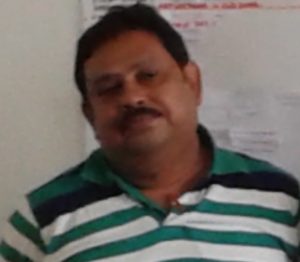 Arnab Chakraborty works at a national NGO called PRADAN (www.pradan.net) with and for extremely poor women to create robust community organizations to stimulate change in each member who individually feels powerless, each with a deeply limiting sense of self-efficacy. He helps them create an environment of togetherness and oneness, lending support to and reinforcing each other and more easily and readily learn from each other. These women working together creates synergy, a social capital, a social and political space for them to change the distribution of power in society. All these involves “enabling” women to take charge of their life around the economic and socio-political realm. This is to ensure that each poor woman is supported to develop livelihood options enhancing her control over economic resources; effectively participates in local governance systems and builds gender-sensitive accountability processes; negotiates intra-family issues that hinder equal access to rights for women and girls, including addressing domestic violence and access rights and entitlements enshrined in the Constitution. Arnab is also a 2016 LIN Fellowship member and received a small grant to develop and implement training on nonviolent action and resistance to Adhivasi women in West Bengal. The grant supported several TOT workshops and training and action plans distributed to many thousands of women who began their public nonviolent resistance in March 8 on International Women’s Day.
Arnab Chakraborty works at a national NGO called PRADAN (www.pradan.net) with and for extremely poor women to create robust community organizations to stimulate change in each member who individually feels powerless, each with a deeply limiting sense of self-efficacy. He helps them create an environment of togetherness and oneness, lending support to and reinforcing each other and more easily and readily learn from each other. These women working together creates synergy, a social capital, a social and political space for them to change the distribution of power in society. All these involves “enabling” women to take charge of their life around the economic and socio-political realm. This is to ensure that each poor woman is supported to develop livelihood options enhancing her control over economic resources; effectively participates in local governance systems and builds gender-sensitive accountability processes; negotiates intra-family issues that hinder equal access to rights for women and girls, including addressing domestic violence and access rights and entitlements enshrined in the Constitution. Arnab is also a 2016 LIN Fellowship member and received a small grant to develop and implement training on nonviolent action and resistance to Adhivasi women in West Bengal. The grant supported several TOT workshops and training and action plans distributed to many thousands of women who began their public nonviolent resistance in March 8 on International Women’s Day.
 Reena Shadaan is a doctoral candidate in the Faculty of Environmental Studies at York University (Toronto, Canada). Her work explores gender and environmental racism, environmental health, and reproductive justice. Since 2013, she has been Coordinating Committee member of the North American solidarity tier of the International Campaign for Justice in Bhopal (ICJB) – an environmental justice and corporate accountability campaign that is led by survivors of the 1984 Bhopal gas disaster, and seeks justice for the ongoing disaster in Bhopal, India.
Reena Shadaan is a doctoral candidate in the Faculty of Environmental Studies at York University (Toronto, Canada). Her work explores gender and environmental racism, environmental health, and reproductive justice. Since 2013, she has been Coordinating Committee member of the North American solidarity tier of the International Campaign for Justice in Bhopal (ICJB) – an environmental justice and corporate accountability campaign that is led by survivors of the 1984 Bhopal gas disaster, and seeks justice for the ongoing disaster in Bhopal, India.
Struggling for Livelihood, Dignity, and Free and Fair Elections in Africa: Spotlight on Kenya
This “Voices from the Field” webinar is scheduled for Thursday, October 5 from 10am to 11:30am ET.
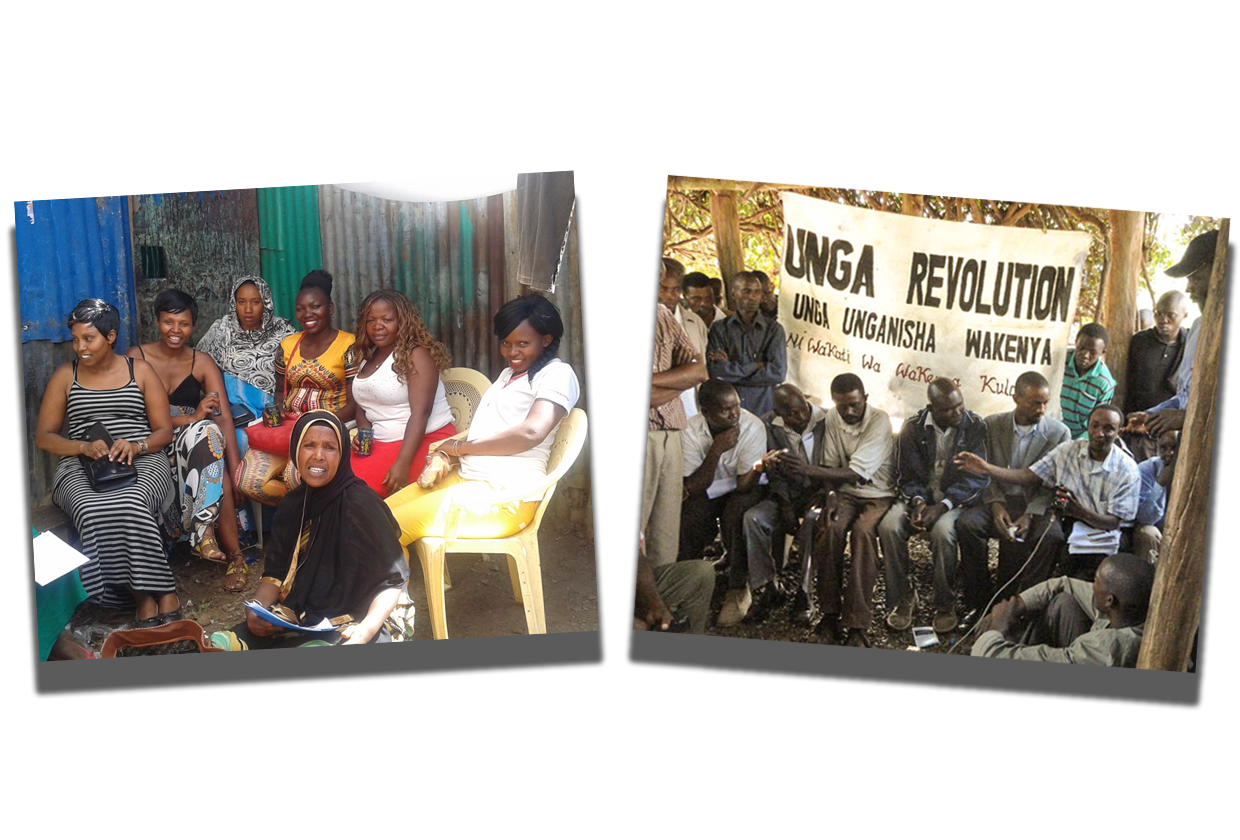 Webinar summary:
Webinar summary:
With the recent presidential elections nullified by the Supreme Court, Kenyans are struggling for free, fair and verifiable elections. Without these, the risk of violence rises. This webinar will focus on grassroots coalitions like Kenyans for Tax Justice that are using strategic nonviolent action for a variety of goals: to ensure free elections; to end extra-judicial killings and violence against women and youth; and to achieve basic human rights enshrined in the Kenyan constitution but not realized for most of the country’s population. Many citizens in countries around the world, including democracies and those with more authoritarian governments, are grappling with the same challenges. The webinar will offer practical strategies, insights, and lessons learned that are relevant for activists and organizers struggling for justice in Africa and around the world.
Click here to register
Presenters:
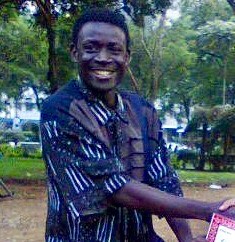 Julius Okoth is a social justice crusader and currently coordinator of Kenyans for Tax Justice movement. He believes in social inclusion, respect for human rights and effective participation of all citizens in democratic and development processes and in governance of public affairs. Together with his fellow citizens at the grassroots, he has been advocating for a system of Kenya’s government that is representative, by demanding national or county government to do something or stop them doing something for the sake of fair, just and equitable Kenyan society directed towards fruitful relationship among human beings and between humans and the Earth.
Julius Okoth is a social justice crusader and currently coordinator of Kenyans for Tax Justice movement. He believes in social inclusion, respect for human rights and effective participation of all citizens in democratic and development processes and in governance of public affairs. Together with his fellow citizens at the grassroots, he has been advocating for a system of Kenya’s government that is representative, by demanding national or county government to do something or stop them doing something for the sake of fair, just and equitable Kenyan society directed towards fruitful relationship among human beings and between humans and the Earth.
Julius and Kenyans for Tax Justice received a LIN 2016 Fellowship and have successfully developed a number of trainers and experts on nonviolent resistance that are spreading the knowledge throughout Kenya in preparation for the August 2017 elections. They are seeking to work with communities and interested parties to oppose the Value Added Tax (VAT) that has recently been imposed on school textbooks, a move which has hit the poorest of the poor school-going children the hardest. The project will work with communities to ensure that these new taxes are abolished, and education is made accessible to all – using nonviolent means of resistance.
It is instructive to note that in Africa, only Kenya and South Africa levy Value Added Tax on school textbooks. This has made books very expensive, considering that majority of Kenyans live below the poverty line. This effort seeks to ensure that books are affordable, and education is accessible to all. They also work on broader rights related to basic needs, violence against women, and human rights.
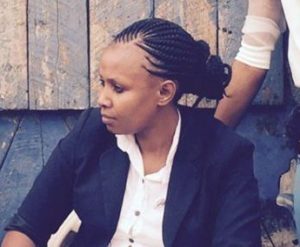 Ruth Mumbi is a social justice activist, a community organiser and a strong defender of human/women’s rights. She was born and brought up in the informal settlement of Mathare, which is a collection of slums, and the second largest informal settlement in Nairobi, the capital city of Kenya. Ruth is the founder and current National Coordinator of Bunge la Wamama, a women’s chapter of Bunge la Mwananchi, a movement that conducts strong advocacy and campaigning on issues of social justice and accountability in different parts of Kenya.
Ruth Mumbi is a social justice activist, a community organiser and a strong defender of human/women’s rights. She was born and brought up in the informal settlement of Mathare, which is a collection of slums, and the second largest informal settlement in Nairobi, the capital city of Kenya. Ruth is the founder and current National Coordinator of Bunge la Wamama, a women’s chapter of Bunge la Mwananchi, a movement that conducts strong advocacy and campaigning on issues of social justice and accountability in different parts of Kenya.
Bunge la Wamama is also a member of the Kenyans for Tax Justice Coalition. Ruth Mumbi was a finalist for the 2013 Front Line Award for Human Rights Defenders at Risk and is a recognized women human rights defender in Kenya that works with grassroots communities. She facilitates community dialogue on social justice issues by empowering my community with knowledge, mobilizing them to expose malpractices by state officers, condemn human rights violations and demand accountability from the government.
Ruth also guides the women in the informal settlements on how to make demands on state agencies, including demands for the arrest of persons who have committed sexual and gender based violence (SGBV) and where police failed to act; and demand justice for the victims and accountability from the police, by linking up victims of SGBV to human rights organisations where they can be offered free legal representation in court. Ruth attended the Centre for Applied Human Rights at the University of York, UK in 2014. Her position as a community leader has led to harassment, attacks, and ongoing threats.
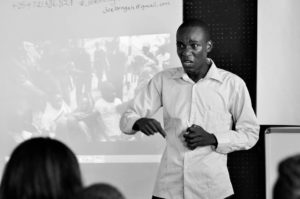 Sakwa Makanda is a social justice activist in Kenya and a leader in the Kenyans for Tax Justice western chapter. His responsibilities include training and capacity building for residents who are mostly peasant farmers, boda boda drivers, and community leaders involved in building nonviolent social movements. In the past, he has been involved in building the unga revolution, a nonviolent campaign advocating for the reduction of prices for basic foodstuffs (unga is a staple of the local population’s diet); occupation of the Kenyan parliament fighting for the reduction of MPs’ salaries; and organizing the Bunga La Mwanchi (an umbrella coalition of a nonviolent movement), and Kenyans for Tax Justice chapters across the country. The goals of these mobilizations are freedom of association and speech. In the course of these struggles, many activists have been arrested, including Sakwa who has appeared in court five times on trumped up charges.
Sakwa Makanda is a social justice activist in Kenya and a leader in the Kenyans for Tax Justice western chapter. His responsibilities include training and capacity building for residents who are mostly peasant farmers, boda boda drivers, and community leaders involved in building nonviolent social movements. In the past, he has been involved in building the unga revolution, a nonviolent campaign advocating for the reduction of prices for basic foodstuffs (unga is a staple of the local population’s diet); occupation of the Kenyan parliament fighting for the reduction of MPs’ salaries; and organizing the Bunga La Mwanchi (an umbrella coalition of a nonviolent movement), and Kenyans for Tax Justice chapters across the country. The goals of these mobilizations are freedom of association and speech. In the course of these struggles, many activists have been arrested, including Sakwa who has appeared in court five times on trumped up charges.
Curriculum Fellowships for Online Courses
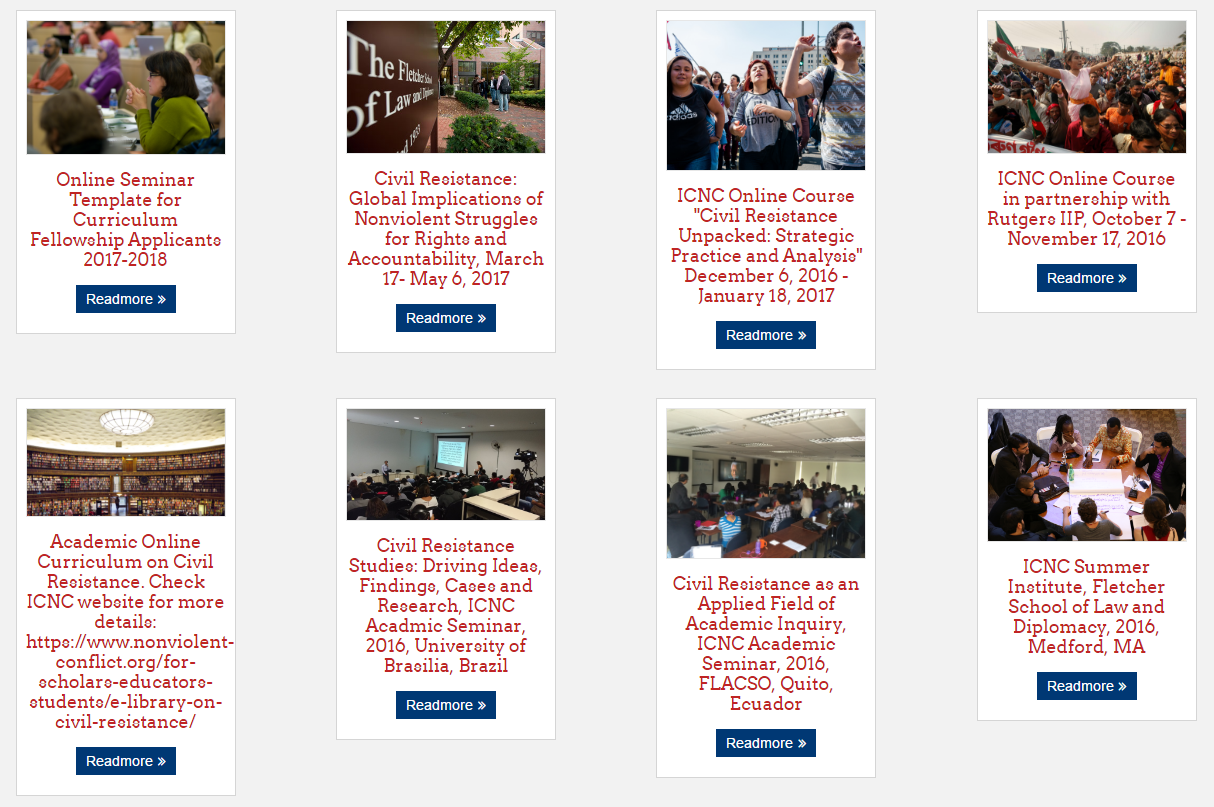 Applicants interested in developing and teaching online seminars
Applicants interested in developing and teaching online seminars
ICNC is strongly interested in supporting the expansion of online teaching on civil resistance, particularly in situations where it is difficult or impossible to develop a formal classroom-based course at a local academic institution. In such cases, ICNC Curriculum Fellowships aims to encourage and support interested instructors to set up an online seminar on civil resistance and offer it to a select group of interested learners.
Interested also in teaching classroom-based courses? Check this curriculum fellowship for classroom-based courses.
Online seminar consists of a minimum of 5 weekly sessions on civil resistance where participants are asked to review relevant session notes, videos, and readings and then engage in forum discussions moderated by a seminar instructor.
The curriculum fellowship is designed to plant a seed for continued education on civil resistance. Applicants should therefore be able to demonstrate that their curriculum is part of a long-term, sustainable teaching plan, as opposed to being a one-off course offering.
Application deadline: April 30, 2017.
Click the links to learn more:
- Eligibility
- Award
- Fellowship Components
- Recommended Resources
- How to Apply
- Fellowship Distribution
- Past Curriculum Fellows
Eligibility
- Scholars, and instructors from colleges and universities around the world who are interested in expanding their institutions’ existing curriculum to cover civil resistance.
- Educators and trainers who might be loosely affiliated with academic institutions at home or abroad but have academic-based training or pedagogical and teaching experience, particularly in regions and countries with restrictive civic spaces or conflicts.
Award Details
In 2017, up to seven curriculum fellowships, each in the amount of $1,300, will be offered on open, merit and competitive bases to qualified applicants to develop:
- an online seminar on civil resistance that will be offered to students and interested learners from applicant’s university, town, district, country or the region. The online seminar would be given through the designated ICNC’s online platform.
In addition to a curriculum fellowship grant, awardees will receive a package with academic books and documentaries on civil resistance. ICNC provides these resources free of charge as part of its curriculum fellowship package to help its fellows develop the content on and teach civil resistance.
Teaching for 2017/2018 ICNC Curriculum Fellowships is expected to take place either in Summer, Fall 2017 or Winter, Spring 2018.
As part of the fellowship it is expected that:
a. Perspective applicant will access and review the Curriculum Fellowship Template for an Online Seminar [enrollment key: Onlinetemplate2017]. Once selected, fellow will be expected to develop a similar online seminar, though customized to fit their own teaching environment, learning objectives and audience.
b. Limited technical assistance from ICNC will be available to help fellows learn basic ICNC Moodle or Open edX functionality to be able to build their own courses.
c. fellow is expected to develop original content for and run an online seminar
d. proposal for the online seminar will, at minimum, include teachable content (such as audio/videos, readings, exercises, forum discussions) on:
- what civil resistance is, including prevailing misconceptions
- historical record and effectiveness of civil resistance
- strategies and tactics of civil resistance
- dynamics of civil resistance including but not limited to the phenomenon of backfire, defections, movement mobilization, sustainability and/or tactical innovation and sequencing
e. fellow moderates the course online in its different forums where learners comment on the materials reviewed and exchange ideas about specific topics and respond to moderator’s questions.
f. fellow interacts with learners via regular, live video-conferencing and creative online content (e.g. case studies/exercises) to ensure learners’ active engagement and to reduce attrition from the online course once it begins
g. no less than 10 and no more than 20 students per fellow are actively engaged throughout the online seminar to ensure effective course moderation and supervision
h. materials on civil resistance that a fellow selects, develops and uploads into online seminar can be in language other than English (check recommended resources) though the initial curriculum proposal for ICNC consideration must be in English
i. forum conversations and moderation can be conducted in a language other than English
j. fellow prepares and shares with ICNC bi-weekly English-language reports on the progress of the online seminar, including participants’ interactions in discussion forums and their work on seminar assignments
k. fellow is encouraged to arrange an online guest speaker who will present on a selected topic on civil resistance
l. fellow develops online evaluation instrument to be used to assess progress in students’ learning about civil resistance
- template of a pre-seminar learning gains survey (distributed prior to the start of the seminar)
- template of a post-seminar learning gains survey (distributed at the end of the seminar)
m. fellow develops online final course evaluation to solicit students’ feedback on the course content on civil resistance
Review:
- template of a final course evaluation
n. fellow submits a final report to ICNC soon after the course or curriculum unit ends. The report will summarize content on civil resistance delivered, including any innovative teaching tools used, completed assignments, aggregate results from the students’ learning gains surveys, results from the final evaluation and general lessons learnt
How to Apply
To be considered applicants should review ICNC recommended list of resources, fill out the online application form, submit CV and curriculum proposal, and other information as requested.
APPLY for the Online Seminar Fellowship
The curriculum proposal should include a detailed description of the content for at least five weekly-based online sessions on civil resistance where participants are asked to review a relevant session description, videos, and readings and engage in forum discussions moderated by a seminar instructor. Once the applicant is selected and becomes familiar with the ICNC online learning management system, s/he will set up the proposed curriculum (with any requested modifications) on the designed space in the ICNC online learning platform.
Application deadline: April 30, 2017 for online courses that will be offered in Summer or Fall 2017 or Winter and Spring 2018.
Recommended List of Resources for Curriculum Proposal Development
In developing the curriculum proposal on civil resistance for either a classroom-based course or online seminar, applicants are strongly encouraged to review the ICNC universal e-classroom for ideas on curriculum content as well as sample syllabi. In addition, applicants may wish to consider integrating into the sessions on civil resistance the following resources:
- ICNC translations: if a proposed course is taught in a language different than English, a fellow will be expected to incorporate translations of civil resistance literature available in the ICNC library, which houses materials on civil resistance in 55 languages.
- A Force More Powerful, 2000 documentary
- Bringing Down a Dictator, 2001 documentary
- Orange Revolution, 2007 documentary
- Erica Chenoweth and Maria Stephan, Why Civil Resistance Works. The Strategic Logic of Nonviolent Conflict (New York: Columbia University Press, 2011)
- Maciej Bartkowski, ed. Recovering Nonviolent History. Civil Resistance in Liberation Struggles (Boulder, CO: Lynne Rienner Publishers, 2013)
- Peter Ackerman, and Jack DuVall, A Force More Powerful: A Century of Nonviolent Conflict (New York: Macmillan, 2000)
- Shaazka Beyerle, Curtailing Corruption. People Power for Accountability and Justice (Boulder, CO: Lynne Rienner Publishers, 2014)
- Veronique Dudouet, ed. Civil Resistance and Conflict Transformation. Transition from Armed to Nonviolent Struggle (London: Routledge, 2015)
- A Diplomat’s Handbook for Democracy Development Support
Check also Selected Bibliography on Civil Resistance (2016)
Applicants’ curriculum proposal – to be submitted as part of the application process – is expected to include a list of resources on civil resistance that an applicant plans to incorporate into an online seminar and is encouraged to identify a potential guest speaker suitable for a proposed civil resistance topic.
Fellowship Distribution
The fellowship grants will be disbursed in two equal installments. The first installment will be made after the course begins, the student enrollment is confirmed and the syllabus with an online civil resistance content has been satisfactorily reviewed by ICNC. The second installment will be made after the online seminar ends and ICNC receives fellow’s final report and results of students’ evaluations pertaining to their learning on civil resistance and course assessment.
Past Curriculum Fellows
2016 Curriculum Fellows
2015 Curriculum Fellows
2014 Curriculum Fellows
Curriculum Fellowships for Classroom-based Courses
Applicants interested in developing and teaching classroom-based courses
ICNC is interested in promoting teaching of civil resistance in academic institutions that have not yet developed coursework on the subject. We especially encourage applications from candidates who do not currently teach civil resistance at the institutions where they want to develop the new curriculum unit. We also prefer that the institutions have at present no courses on civil resistance offered as part of the departmental, school, or university curriculum.
Interested also in teaching online seminars? Check the curriculum fellowship for online courses.
Applicants are expected to develop a curriculum unit on civil resistance that, at minimum, covers five 90-minute sessions over the course of minimum of 5 weeks as part of the undergraduate or graduate course and consists of either instructor guides, readings, modules, exercises, or simulations directly relevant to the field of civil resistance.
The curriculum fellowship is designed to plant a seed for continued education on civil resistance. Applicants should therefore be able to demonstrate that their curriculum is part of a long-term, sustainable teaching plan, as opposed to being a one-off course offering.
Application deadline: April 30, 2017.
Click the links to learn more:
- Eligibility
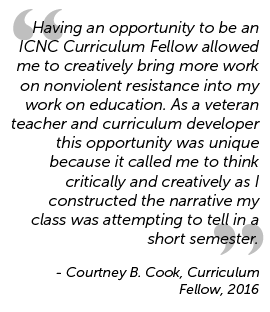
- Award
- Fellowship Components
- How to Apply
- Recommended Resources
- Fellowship Distribution
- Past Curriculum Fellows
Eligibility
- Scholars, and instructors from colleges and universities around the world who are interested in expanding their institutions’ existing curriculum to cover civil resistance.
- Educators and trainers who might be loosely affiliated with academic institutions at home or abroad but have academic-based training or pedagogical and teaching experience, particularly in regions and countries with restrictive civic spaces or conflicts.
Award Details
In 2017, up to seven curriculum fellowships, each in the amount of $1,300, will be offered on open, merit and competitive bases to qualified applicants to develop:
- a curriculum unit on civil resistance that will be offered as a self-standing, elective or mandatory, course at the applicant’s home university
or
- a curriculum unit on civil resistance that will be incorporated into the existing, elective or mandatory, course at the applicant’s home university
In addition to a curriculum fellowship grant, awardees will receive a package with academic books and documentaries on civil resistance. ICNC provides these resources free of charge as part of its curriculum fellowship package to help its fellows develop the content on and teach civil resistance.
Teaching for 2017/2018 ICNC Curriculum Fellowships is expected to take place either in Summer, Fall 2017 or Winter, Spring 2018.
As part of the fellowship it is expected that:
a. fellow develops a full-fledged course syllabus that includes a curriculum unit on civil resistance. A unit on civil resistance covers minimum five 90-minute sessions over the period of minimum of 5 weeks.
b. sessions on civil resistance that are part of the developed curriculum unit will, at minimum, analyze and explain to students:
- what civil resistance is, prevailing misconceptions
- historical record and effectiveness of civil resistance
- strategies and tactics of civil resistance
- dynamics of civil resistance including but not limited to the phenomenon of backfire, defections, movement mobilization, sustainability or tactical innovation and sequencing
c. no less than 10 students will register and attend the course
d. course syllabus, assignments and assessment materials are to be developed in English, though the course itself can be conducted in a different language
e. fellow hosts at least one guest speaker that will present on a selected topic on civil resistance
f. fellow develops online evaluation instrument to be used to assess progress in students’ learning about civil resistance
- template of a pre-seminar learning gains survey (distributed prior to the start of the seminar)
- template of a post-seminar learning gains survey (distributed at the end of the seminar)
g. fellow develops online final course evaluation to solicit students’ feedback on the course content on civil resistance
Review:
- template of the final course evaluation
h. fellow submits a final report to ICNC soon after the course or curriculum unit ends. The report will summarize content on civil resistance delivered, including any innovative teaching tools used, information on the guest speaker talk, aggregate results from the students’ learning gains surveys, results from the final evaluation and general lessons learnt
i. students’ feedback/evaluation and recommendation for improvements
j. fellow selects and submits to ICNC- with students permission –one/two outstanding pieces of written or audio/video work on civil resistance done as part of the course
To be considered applicants should review ICNC recommended list of resources, fill out the online application form, submit CV and curriculum proposal, and other information as requested.
How to Apply
To be considered applicants should fill out the online application form, submit their CV and curriculum proposal, and other information as requested.
APPLY for the Classroom-Based Fellowship
The curriculum proposal should include a detailed description of the content of at least five 90-minute sessions that will be taught for a minimum of 5 weeks. Each proposed session must include a brief description of the topic covered, as well as a list of assigned readings on civil resistance. If applicable, the applicant should also attach a revised syllabus that will include the newly proposed sessions on civil resistance and explain how these new topics relate to the existing course material. Finally, the application will identify the course number, its elective or mandatory status, departmental/institutional affiliation for the course, average number of enrolled students, and the semester when it will be offered.
Application deadline: April 30, 2017 for courses that will be offered in Summer, Fall 2017 or Winter, Spring 2018
Recommended List of Resources for Curriculum Proposal Development
In developing the curriculum proposal on civil resistance for a classroom-based course, applicants are strongly encouraged to review the ICNC universal e-classroom for ideas on curriculum content as well as sample syllabi. In addition, applicants may wish to consider integrating into the sessions on civil resistance the following resources:
- ICNC translations: if a proposed course is taught in a language different than English, a fellow will be expected to incorporate translations of civil resistance literature available in the ICNC library, which houses materials on civil resistance in 55 languages
- A Force More Powerful, 2000 documentary
- Bringing Down a Dictator, 2001 documentary
- Orange Revolution, 2007 documentary
- Erica Chenoweth and Maria Stephan, Why Civil Resistance Works. The Strategic Logic of Nonviolent Conflict (New York: Columbia University Press, 2011)
- Maciej Bartkowski, ed. Recovering Nonviolent History. Civil Resistance in Liberation Struggles (Boulder, CO: Lynne Rienner Publishers, 2013)
- Peter Ackerman, and Jack DuVall, A Force More Powerful: A Century of Nonviolent Conflict (New York: Macmillan, 2000)
- Shaazka Beyerle, Curtailing Corruption. People Power for Accountability and Justice (Boulder, CO: Lynne Rienner Publishers, 2014)
- Veronique Dudouet, ed. Civil Resistance and Conflict Transformation. Transition from Armed to Nonviolent Struggle (London: Routledge, 2015)
- A Diplomat’s Handbook for Democracy Development Support
Check also Selected Bibliography on Civil Resistance (2016)
Applicants’ curriculum proposal – to be submitted as part of the application process – is expected to include a list of resources on civil resistance that an applicant plans to incorporate into a classroom-based and identify a potential guest speaker suitable for a proposed civil resistance topic.
Fellowship Distribution
The fellowship grants will be disbursed in two equal installments. The first installment will be made after the course begins, the student enrollment is confirmed and the syllabus with a civil resistance component has been satisfactorily reviewed by ICNC. The second installment will be made after the classroom-based course ends and ICNC receives fellow’s final report and results of students’ evaluations pertaining to their learning on civil resistance and course assessment.
Past Curriculum Fellows
2016 Curriculum Fellows
2015 Curriculum Fellows
2014 Curriculum Fellows
